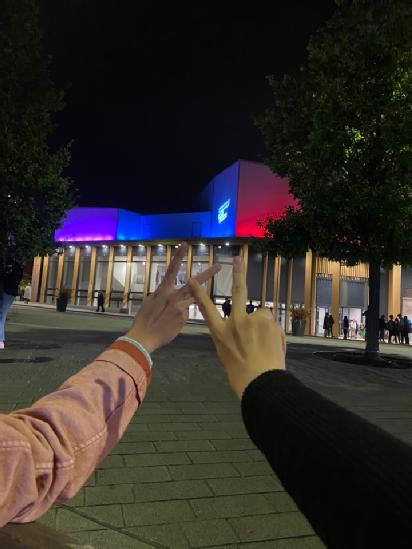Student Blog Collection
7 Things You Should Bring to the UK
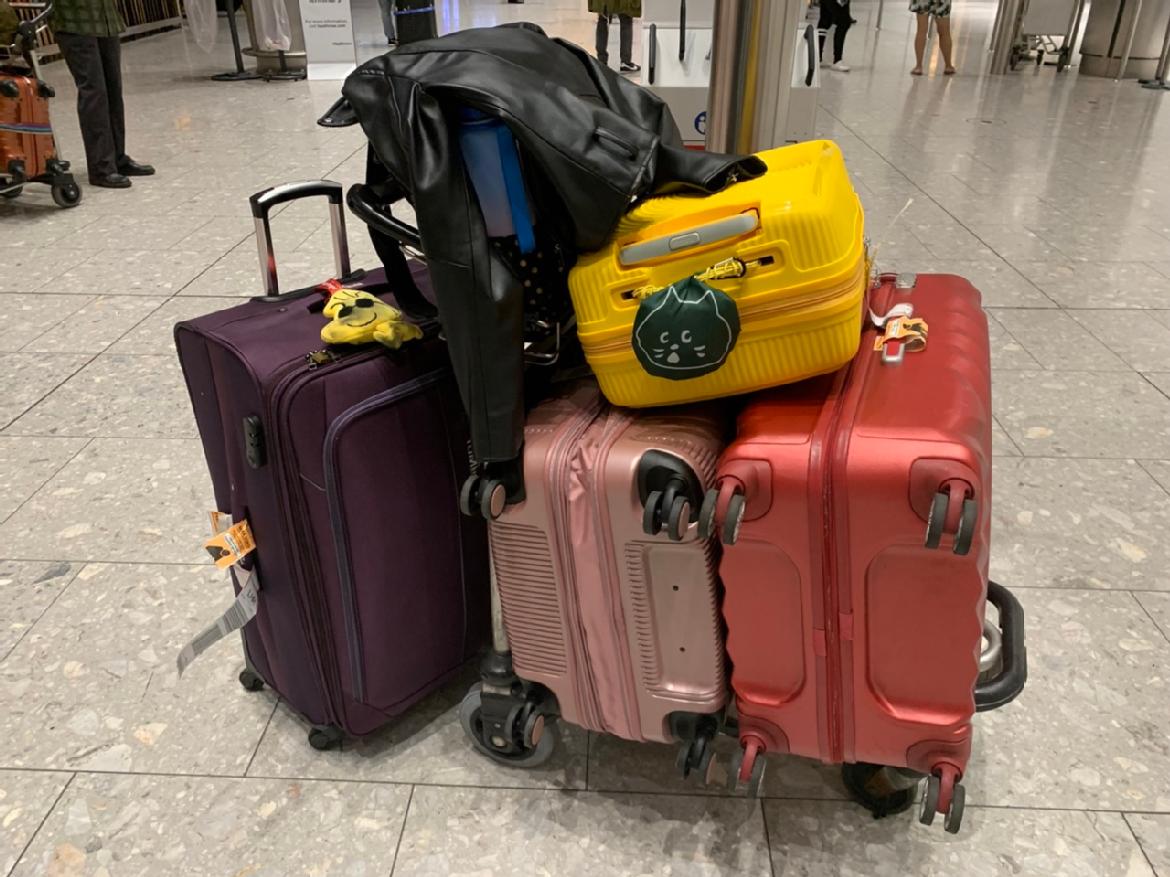
“Visa is done, flight tickets booked, and student accommodation reserved, it’s time to pack my luggage…” Till this stage are you overwhelmed? Do you have an idea about what you should bring from your home to the UK and what you may not need to? If you are in doubt, let’s continue reading and my recommendation may give you some ideas! 😉
1. Oral Cleaning Products - Electronic Toothbrush and Dental Floss
Should you have a habit of using electronic toothbrushes and dental floss, I strongly recommend you bring your electronic toothbrush and extra heads refills and floss. Otherwise, you may regret like me as the product price here is at least a double or even triple, compared to my city (/_\)…
The average regular price of an electronic toothbrush in the UK is around 40-50 GBP, and dental floss sticks are usually around 4-6 GBP for a pick of 36-72pcs. The price of toothbrush head refills is various, and it may be uneasy to find a refill that is suitable for your toothbrush as the product lines may not be completed at Boots and you may need to search and purchase online. Therefore, bringing oral cleaning products from your home could save you money and avoid inconvenience if you cannot find the items you are used to using here.
2. Waterproof and Windproof Down Jacket
A good quality waterproof and windproof down jacket is essential for your survival in the UK. The weather here is dynamic, it is like having four seasons within a day. From my experience, almost half of the time is very windy and rainy, and you are hard to carry an umbrella when it is raining. Therefore, a down jacket with wind and waterproof functions can keep you warm and dry.
Of course, you are always welcome to buy a jacket after you arrive in the UK, as sometimes you may find amazing flash sales in boutiques or outlets. However, I also suggest you consider buying one from your home country because it is very likely that the silhouette and sizing of the jackets in the UK may not be your perfect fit - Especially for Asian girls, the figure shapes and heights are quite different with Europeans.
3. Skincare
The period of adapting new lifestyles to everyone is different and some of the people may take a longer time for the adaption as they may not get used to the change of weather easily, and then lead to skin or allergy issues. To ease the adaption process, a set of skincare which you keep using at your home may help.
For the ones who usually use Japanese or Korean skincare, you should bring some extra sets from your home as the price of Asian skincare brands in the UK is quite pricy and you may not be found on high streets. However, if you are not sensitive skin and are open to trying new brands, I recommend you can go to Boots or some online platforms to explore new products (for sure you will discover loads of good quality skincare at a reasonable price!).
4. Medicine
Most people bring their own medicine for travelling and I think you should also do the same when studying abroad, especially for those who easily get sick or ongoing taking a particular medicine.
Even though you can get the medicine you need in a pharmacy in the UK, the medicine here may not be what you are familiar with, and it may overwhelm you if you just arrived and are unwell at the same time. Therefore, bringing your own medicine can always resolve your urgency quickly and make you feel more secure when you first land in the UK. Indeed, I also recommend you get to know more about the NHS system and pharmacies in the UK after you get used to living here so that you will know where you should seek help when you get sick.
5. Trousers
If you think you are in general heights of Asian girls, I strongly suggest you bring a few more pairs of trousers and jeans, otherwise, you will regret like me
Most of the trousers or jeans I’ve bought in the UK are quite long for me, and I need an alteration or wear a pair of shoes with platforms, to make sure I can walk properly. Of course, some brands offer petite collections which may fit Asian height, but the styles and options are quite limited. If you do not want to keep wearing the same pairs of trousers, or just wearing dresses or skirts, better bring extra pairs of trousers and jeans from your home country.
6. Comfort Food
Eating something you really like can always help you destress and make you happy, especially when you get homesick or are overwhelmed by assignments. I suggest you could bring some food or snack which are not sold in the UK, so you feel more comfortable when you eat and are mentally unwell.
The food and snack can also be a very good tool to help you make more friends easily, by exchanging and experiencing different cultures with different people
7. Rice Cooker
If you are a rice lover like me, bringing a rice cooker from your country should be one of the must-do lists. Rice cookers sold in Asia contains various functions and could cook rice in different textures. Compare to those selling in the UK, the cookers sold in Asia are with more reasonable prices and functions, even better appearance. (FYI, rice cookers in the UK usually are with very basic functions and they are quite pricy and with limited supply.)
Even though the weight of a rice cooker is a bit heavy, trust me, it is worth it! - You can always eat home-taste rice effortlessly during your time in the UK.
The above suggestions are all from my own experience and an Asian perspective. Hope the little sharing could help those who are having a similar cultural background and coming to Warwick very soon. Wish everyone a good and easy start to your journey in the UK ;-)
"Too American"
Wherever you plan to travel, even if it is for holidays, for studying or for work you must know you will always face cultural shock. It doesn’t matter if this new place is near to your home city, or if people speak your same language, you will feel it. And maybe it won’t be that evident in the first days but with time you will realize it.
From my personal experience, I was really surprised when I started to notice small differences that I never thought will exist or will affect me. I will share with you a silly, funny example: before coming to the UK a bought a folder that I really liked, just to start classes with new and nice stationary. However, when I reach Coventry, I looked everywhere for pre-punched paper for the folder but after asking in many shops, one of the sellers just told me “This is too American”. Yes, apparently three prongs folder is “too American” hence I couldn’t find refill paper for it, in Amazon it was way too expensive and now I just can’t use my nice purchase.
Therefore, with time you will experience different situations, not founding what you use to eat at home, with the service culture, with the transport experiences, or other small things. This may affect your emotions and your experience in the UK so it is important to be aware of it and as my TOP TIP to survive to this will be to keep calm. Enjoy it and remember that you are not alone, everyone is going through this, it is just a matter of getting adapted. Even Londoners can get the feeling of being unfamiliar with the way of leaving. Remember that Coventry is a small city, so if you come from another country, from a big city, more familiarized with other culture than the European, and additionally, your culture is not very represented in the country, the change will be huge so take it easy and feel proud of you every single day you are here not everyone can do it.
Feel pressured? Here are the hidden places in Warwick helping you get refreshed!
Hello, my friends!
Easter is coming! On-campus, many undergraduate students leave campus to enjoy spring break.
And our postgraduate students, especially WMG students, are now busy focusing on a dissertation. It would be tough to manage the dissertation, lectures, and PMA. I also have had academic pressures these days. As I mentioned before, mental health is essential to students in taking new information, academic achievements, and relationships. So, I would like to talk about the best-hidden spots in Warwick to relieve your stress. As the weather is getting warmer and you can feel the sunshine, it is recommended to visit the following places when you guys want to refresh yourself.
1. Quiet place to gaze stars

You guys have already visited cafe pret in SU building. Then, have you ever seen behind the roots building? Between bluebell and roots accommodation, there are a quiet and eco-friendly place hearing sounds of water and ducks. There is a narrow path which can go for a walk and meet many ducks on the small pond. I found this spot when strolling at night, and my personal tutor also recommended this small park to relax. I love this place because you can gaze at many stars when stopping by here at night. In Korea, my hometown, Seoul, it is hard to see tons of stars due to the bright city lights. I was so surprised when I went to this place and saw stars without any effort to find a dark and silent place to concentrate on. This place made me calm when I had a lot on my mind. You can ease your concerns while gazing at stars sitting on a bench and listening to music. It is also good to take a walk in the daytime. Peaceful scenery apart from hectic campus life enables you to recharge energy.
2. Good running course

Across leighfield from cryfield accommodation, a narrow running path is between two broad greenish football pitches called connect2kenilworth. I enjoyed walking or riding a bike along this road and used to run this route in the morning, seeing the sunrise. As you can see in the picture, many trees on both sides of the road help relax your tired eyes exposed a long time in front of a laptop monitor. Before you arrive at the starting point of Kenilworth, it takes around 30 minutes which is approximately 4km, as a back and forth running. I could start my day energetically after 30 minutes of running and keep strengthening my health.
3. Tip for borrowing bikes

Students riding shared green bikes written in West Midlands cycle hire around the campus. I often ride this shared bike when strolling campus or going to Tesco.
Download the Beryl appLink opens in a new window and enter six numbers on the app shown on the bike’s handle to borrow the bike!
For your small tip!
Before you depart to your destination, check whether your destination is included in a possible area with your bike. If not, you might return with a bike to find a parking spot. And purchasing a bundle pack is reasonable if you like to ride a bike often:)
I am happy that I can share my favourite places in Warwick with my friends:) If you struggle with your academic stuffs, take a deep breath explore campus to find your secret place to have a break. Don’t worry, it will all work out!
MSc e-Business Management
JiHyun Park
Delicious Chinese Cuisine in Coventry
It can be very stressful and busy working as postgraduate students in WMG, which is why from time to time, we need extracurricular activities to refresh our minds from lectures and PMAs.
People have all kinds of interests to relax and have fun. But if we are going to find a common ground, I believe top choices should include having enjoyable food.
Personally, delicious cuisine always gives me a refreshing mind and ease the tension in my study. Just last weekend, I paid a visit to one of the Chinese restaurants in downtown Coventry and it is amazing.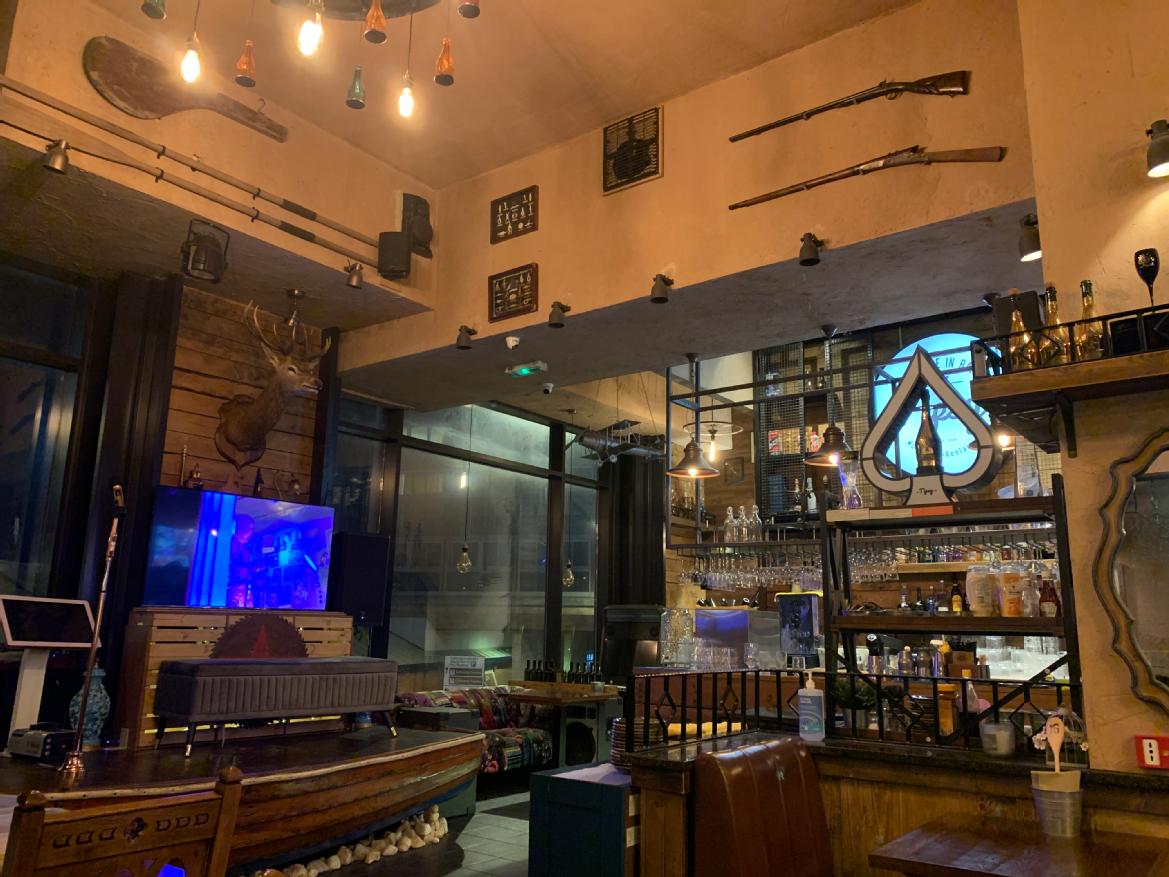
Living on campus of the University, we took the bus and spent around 20-30 minutes to downtown Coventry.
My friend and I ordered rice noodles, skewers, and Tinfoil BBQ, which is all served in alignment with the Chinese flavour. I especially like the rice noodles, for the soup is tasty and the noodles are smooth. As a Chinese, it even reminds me of my hometown where they serve the same taste rice noodles. With great food, we were relaxed and casually chatting.
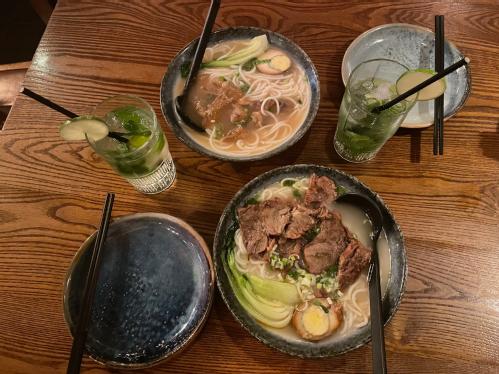
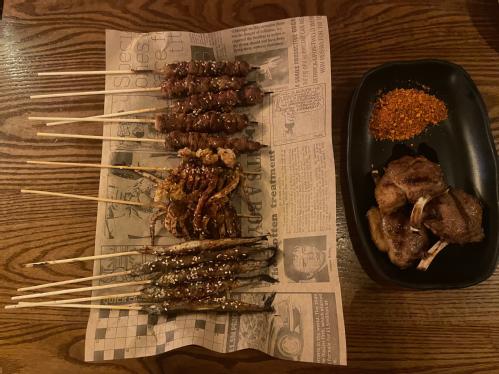
Of course, they aren’t just Chinese restaurants in downtown Coventry. As far as I learned, we have Korean restaurants, Japanese restaurants, Vietnamese restaurants and more. They are served with their traditional food and worthy to have a taste.
As a student at the University of Warwick, Coventry is a great place to explore. It is not as big as cities like London or Birmingham, but it has its characteristics. And I am intended to explore more amazing restaurants in Coventry with my pretty and warmhearted friend.
As international students studying in Britain, we ought to have a lot of unforgettable memories. A night with a friend in a nice restaurant in Coventry downtown is definitely among them.
MSc SCAV-Hetian Wang
“This New City”...My Top Cultural Shocks
Finally, after getting admission into the prestigious University of Warwick and the painstaking process of visa and travel planning, I arrived in the city of Coventry.
I had planned for months for this move. Leaving a decent job and my amazing family and moving abroad was huge for me, I had thought so much about how my life would be but ironically paid little attention to researching the city I was moving to.
Needless to say, I was culture-shocked when I arrived. Having lived in Lagos's bustling and vibrant city, I was immediately surprised at Coventry's serene and calm culture. There was a particular time when I stepped out by 5 pm to the city center, and I found shops already closing for the day; I was completely shocked at this. At home, life was just starting at 8 pm.
Another immediate thing I noticed was the fact that I had to walk everywhere. Coventry has a great bus system that is mostly effective, but you will defiantly still have to take long walks between streets and bus stations. Again, coming from a city where it was extremely easy to take an affordable cab anywhere, I immediately hated it, especially because of the weather. omg!
The weather was definitely another thing that took some getting used to. Luckily for me, I arrived at the beginning of Autumn, and I was able to gradually ease into the chilly winter months. This also came with having to wear jackets and thermal wear everywhere and taking coffee breaks multiple times a day. Urgh!
Amazingly, after being here for six months now, my perspective has changed. I love Coventry’s beautiful and rich culture and the history embedded in every corner of the city; I enjoy taking long quiet walks, especially in the evenings; the people are kind and helpful, and living in a quiet city can be very peaceful. It took some time getting used to, but I love “This New City”
P.S If you are coming to Coventry as an International student, be open-minded and ready to learn, and re-learn. It may take some time, but you will soon discover that Coventry is an amazing place to be in, and it would shape a big part of your stay at the University of Warwick.
Tjp Aremu, ITM
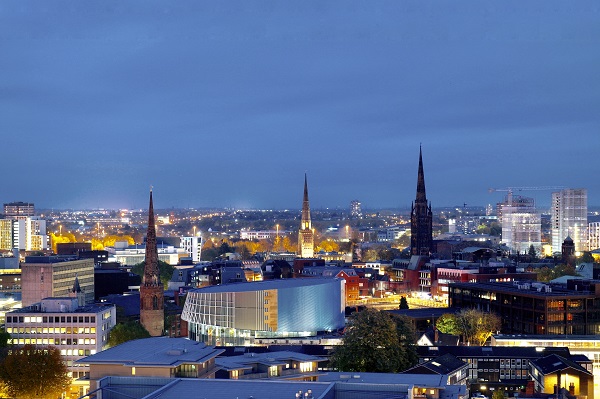
Pros and Cons of WMG's Module Model
Hi everyone,
I want to share my experience with the WMG’s “module model”. Unlike undergraduate programmes and other master’s degrees, WMG structures its courses with modules, which means you only take one course at a time, for one to two intensive weeks. I say intensive because during the “short” length of the course you’ll learn what you will usually learn in two and sometimes even three months. During the first week, you’ll have lectures from 9 am to 5 pm (sometimes 6 pm) to make sure the tutors are able to cover all the topics, and then, on week two, you will do the IMA (in-module assignment), which is usually a group work, and, in my case, usually involves an oral presentation (this is great practice for the real world, trust me.) After you’re done with you IMA, you don’t have any more lectures about that specific subject, but then you have one month to do your PMA (post-module assignment) that is an essay or business style report regarding what you learned in the module.
By now, I have been through 5 of the 7 modules of my course. At the beginning, it was hard getting used to the idea of not having a regular schedule for the whole term, or the fact that you must learn a lot of information in just one week, but it has been a good opportunity for me to adapt to something new and get out of my comfort zone, as I was used to having subjects that lasted a whole term and where I had several small assignments and not just two (I was freaking out just thinking my whole mark depended in just two things because: what if I messed up?). I have identified this model has its perks as well as its disadvantages, so today I want to share with you my Pros and Cons list:
Pros:
ü You easily perceive you are progressing and building up your knowledge, as the modules are structured in a logical way, and they complement each other. For me, it is very gratifying to see that I can apply what I learned in previous modules in the new ones, and that the course has a clear objective.
ü You will never have two deadlines on the same day, or even week. Since you don’t take more than one module at a time, it is not possible for two module’s PMA to have the same submission date. This, for me, is very good because I can really focus on each PMA and I can easily prioritise (sometimes, you will still have to work in two PMA at the same time, but it is manageable).
ü You are free to manage your “free-lecture” time as you want. If you are smart enough, you will be able to work on your PMA, your dissertation, and travel while you don’t have to attend lectures. Sometimes, you might have one week, or sometimes a month without any classes. This time is yours to manage. I have really enjoyed the fact that I can travel, or have day trips, or just have a day-off. I think it helps me with my well-being. But remember, the key is to be smart about how you spend this “free” time: you still have PMA and dissertation.
Cons:
û Module weeks are exhausting. After your 9 to 5 class day, you will be very tired, and you’ll probably just want to get home and sleep. It’s normal, because you are learning A LOT of new things in just one day, and trust me, it can be overwhelming. My advice is that, after class, you find time to do something you like and sleep well so that you make the most of your lecture the next day.
û You are free to manage your “free-lecture” time as you want. Yes. This is a pro, but also a con. The fact that you are not forced to attend a lecture can make it hard to get you working and sometimes, you might not be as productive as you want. Sometimes we just need someone telling us what to do, how and when to get going… We are humans. But, again, it all comes to how smart you are about time management: it’s all about balance between having fun, relaxing, and studying.
û You can’t settle a routine: since you don’t have the same classes throughout the term, you can’t establish a routine for every week, or even plan some things in advance, because you might get the timetable for your module just a week before. I am a routine person and I like to plan everything, so, obviously, this was a big shock for me at the beginning. However, I have made it work by establishing “mini-routines” for when I have lectures and when I don’t. Flexibility is the key here!
Please consider that this is my opinion. What is an advantage to me, might be a disadvantage to you. However, it is important that you understand how WMG structures its courses, because it might determine whether you attend Warwick or not. You might like this style of teaching, or you might not. That’s ok. The important thing is that you understand how it works and see if it is a) what you want, and b) something that fits your personality and how you like to learn. In my case, it was hard at the beginning, but now, I enjoy it and I think is one of the main reasons why WMG differentiates itself.
Mariana Amador
MSc e-Business Management (Digital Marketing)
Tips for students who seek job opportunities in the UK
Hello my friends
Spring is coming!
Flowers are blooming around the campus🌸
Today, I would like to share the tips when you prepare and seek jobs in the UK.
WMG has a wonderful career programme that you can join from the beginning of term 1.
I am going to share my experiences that attended from term 1 to now:)
[MyAdvantage]
1. CV and LinkedIn
You can tailor your CV and LinkedIn profile with professional tutors. When you access MyAdvantage, you can book the time slot to get personal feedback. The feedback session will be held online or in person. And if you finish reflecting on your document, book one more session to ensure your revision and get another feedback with different views on your CV.
The time slot opens every week. Check early and get feedback!
2. Adjust your preference
At the beginning of the first term, I had several career-related sessions in WMG, and the crucial point is you need to keep adjusting your job preference on MyAdvantage page.
Based on your preferences, you can find job vacancies or internship programmes. It is essential to update your interest that helps to seek the opportunities easily.
[Consultancy with Konstatina]
Our amazing career assistant Konstantina will wait you in MEC 102!!
Once a week, a drop-in session in MEC Konstantina will assist you with career issues. If you want to talk face to face with Konstantina regarding career problems, Don’t forget to join the drop-in session.
[Career Festival]
WMG holds a big career festival every term. There was a virtual career event on term 1 that can build networks by one-to-one online meetings with prospective employers.
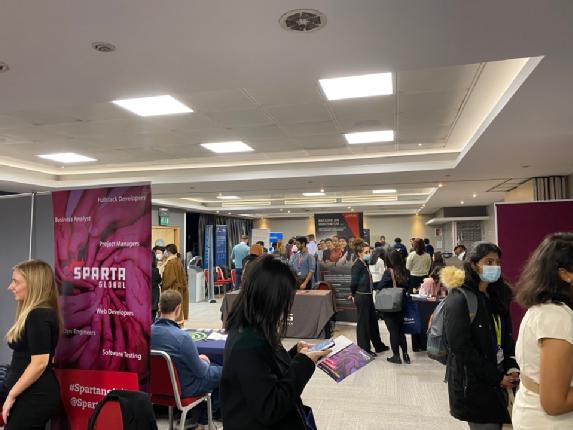
In term2, FutureFest 2022 was held on campus in February. FutureFest deals with all aspects of issues that students can face while applying for jobs, including visa problems, interview skills, and exploring job opportunities. It was really helpful that hear from expected employers, prospect career opportunities, take skills workshops and build network with others. You also can get your professional photo which can be uploaded to your LinkedIn.
Fourteen companies took part in this event, such as Rolls Royce, Faithful+Gould, Tata Consultancy Services, Alten UK, ABP Food Group UK and TPP and interacted with WMG students.
I appreciated this event to resolve some issues that I struggled with when seeking jobs.
I recommend those career sessions to my friends and hope my experiences and tips are helpful to get good opportunities in the UK.
Thank you:)
See you following content!
MSc eBusiness Management
JiHyun Park
Living in Canley
Hi guys,
after I got my offer from Warwick, one of my first worries was where I want to live and how a find a place there. In the end, I decided not to live in student accommodation on campus, but in a house in Canley, which I share with other students. I would now like to take you with me and tell you why I decided to live here, how I like it here and how I found the accommodation.
So from the beginning, why did I decide against a student residence and for a shared house off-campus? The reason is actually quite simple. I had lived in a student hall of residence before and didn't feel like moving back into one. I wanted to be able to talk to the people I was moving in with beforehand so that I could choose more actively where exactly I was going to live.
I found my final accommodation on Facebook, where there are 2 groups where Warwick students are looking for or offering accommodation, one is University of Warwick Accommodation 2022/23: Find Rooms, Houses, Housemates... and Warwick postgraduate students looking for housemates. In addition to the Facebook groups, I checked the Student Union forum (https://www.warwicksu.com/forums/topiclist/630/) and spareroom (https://www.spareroom.co.uk/) from time to time to see if there was anything suitable.
All in all, I am very happy with my decision. Canley is relatively close to campus, so I can be at the university in 5-10 minutes by bike or 20 minutes on foot. I also pay a little less for an en-suite room here than I would have on campus. Quite a few Warwick students are living in the area, probably because it is so close to campus. However, is more of a residential area. You don't really find cafes, restaurants, pubs or anything like that here. For that, you either have to go to the campus, towards the city centre, Earlsdon, or to Leamington Spa, where a lot of students also live. Some people believe that Canley is not necessarily the nicest area, but the decisive factor for me, why I didn't move to Leamington or similar, was the proximity to the campus, as I didn't want to be dependent on buses.
I hope this helped with your thoughts about a suitable place to live.
Henrike Weglage
ITM

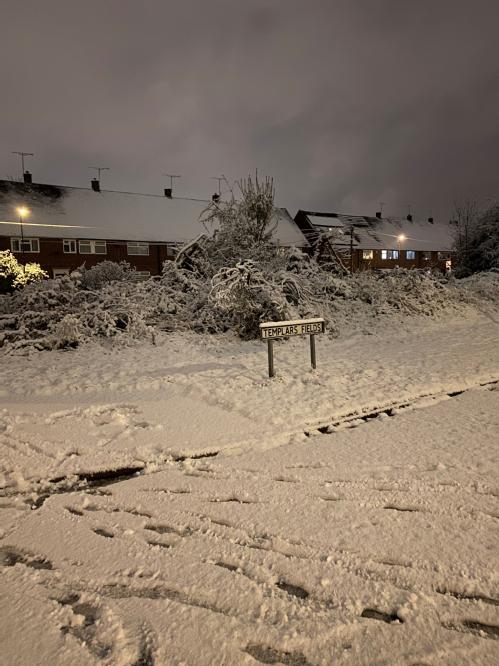
Daytrip #1 – Oxford
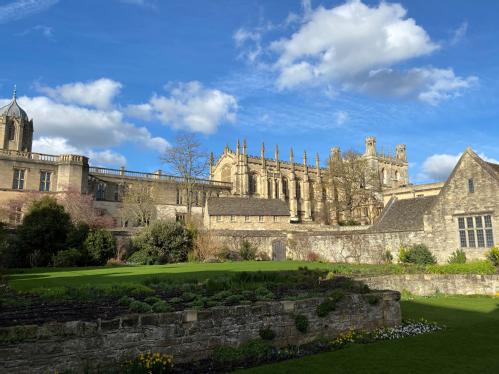
One of the best things about Coventry is its location in the heart of England, with many destinations in day-trip-distance. Therefore, I thought I’d make a series about the day trips I do during my time here and give you some ideas of what you could do on the weekends
Only ~45 min by train away lies one of my absolute favourites – Oxford. So, checking the weather forecast, coordinating with 2 friends and off we went on a Saturday in March. Our train left shortly after 9 in the morning, so we could start with a relaxed breakfast in Oxford. Afterwards, we walked through the city a bit, past all the old colleges, and took a look at them from the outside. The weekend we were there, some of the colleges had graduation, so the whole city was full of graduates in their robes and hats, very fitting for the cityscape. On our way, we stopped at the covered market. Personally, I love market halls, so that felt like heaven for me. Here we found not only flowers and the like, but also food stalls and patisseries.
Afterwards, we went to the History of Science Museum, the entrance was free and the two small exhibitions there, with many old globes and old medical equipment, were definitely worth seeing. At lunchtime, we climbed the tower of the University Church of St. Mary The Virgin. The view from up there is simply amazing (photo 2)! You can see the whole city from above and also look directly at Radcliffe Camera. And don't forget the scones, which we had in the café directly below (photo 3). There is nothing left to be wished for a perfect afternoon tea.
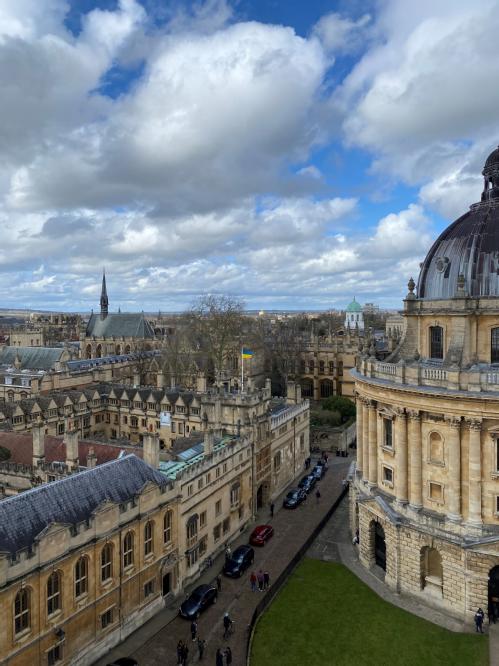
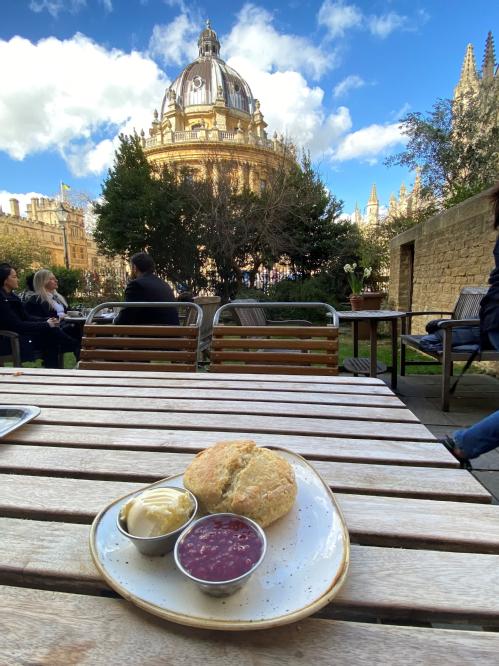
If you're already in Oxford, of course, you can't miss seeing at least one of the famous colleges from the inside. Especially if you're a Harry Potter fan. The inspirations taken from here are clearly recognisable, apart from the fact that some scenes were actually filmed here. Due to graduations, many colleges were closed when we were there, but we were lucky and were able to see Magdalen College from the inside. Surprisingly, they even have a meadow with deer here.
We ended the evening in one of the countless pubs in Oxford before returning to Coventry by train.
Altogether, Oxford is an amazing city. I just love the vibe and how the city is full of students. There are so many cute cafés and cosy old Pubs, so the city is definitely worth a visit!
Henrike, ITM
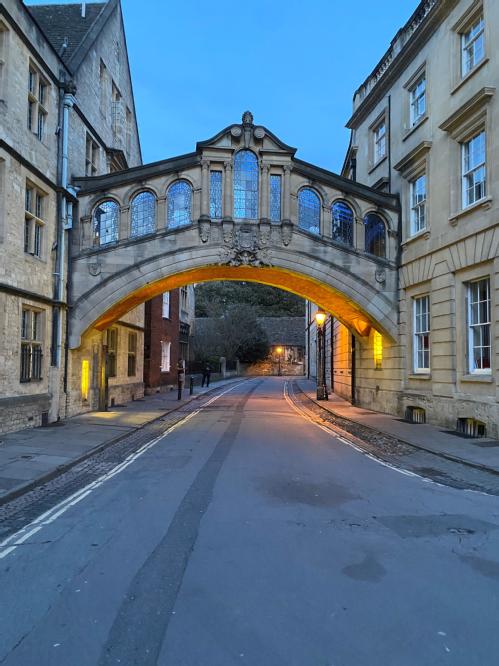
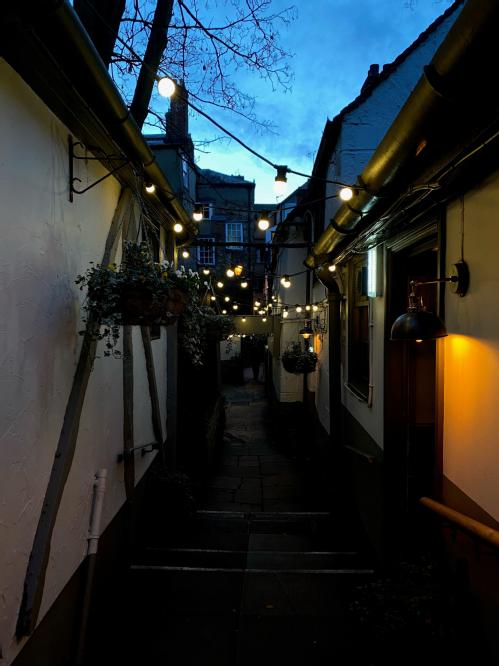
Get involved!
I know this can sound like an overrated quote that every university staff and family member will tell you, but here I will tell you the truth from the student's point of view. The university proposes a high diversity of activities and events, some just for divertissement, other for your personal and professional development. Of course, you won’t find everything interesting but try My Advantage, which is a tool for all the WMG students where you can book events, meetings, and more. On the website look for the offer they have in the upcoming days and I can guarantee you can find something you like. And if it is not the case, I am pretty sure the free food and snacks offered on some of them will move you to go. Additionally, do not forget that it is a great place to meet new people and practice your English.
Moreover, weekly you will receive emails from the university advertising different raffles, vouchers, student gifts, and activities in the area. Participating in all of them can be a great thing to try your chance as is just for students and not all read carefully those emails and participate. Usually, I don’t win anything on those raffles but this winter a received two tickets to the ice skating in Coventry, so I invite a friend to come with me and we really enjoy it, so, yes it is possible to win some free stuff.
Finally, even if you are not in any society, try to follow them on social media, they have periodic events that you can enjoy, such as movies with pizza, walks, crafting, and more options to just relax a little and as I already mentioned to meet new people and socialize. So, resuming this post, my is to participate in everything you can! You may find, great friends, free food, discounts, gifts, and an amazing experience in your year studying In Warwick.
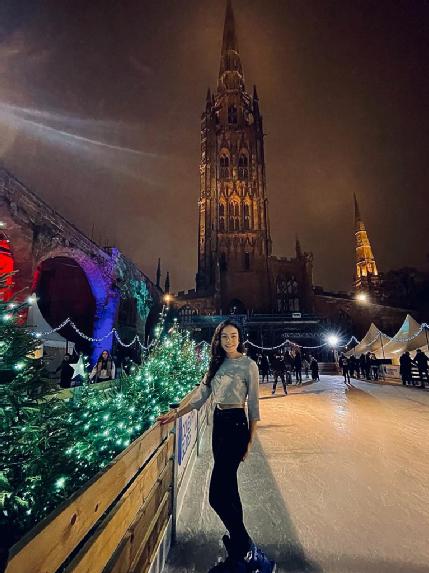
Juanita Pachon
MSc Supply Chain and Logistics Management
Time for Doing Workout! Three Tips to Keep A Good Habit!
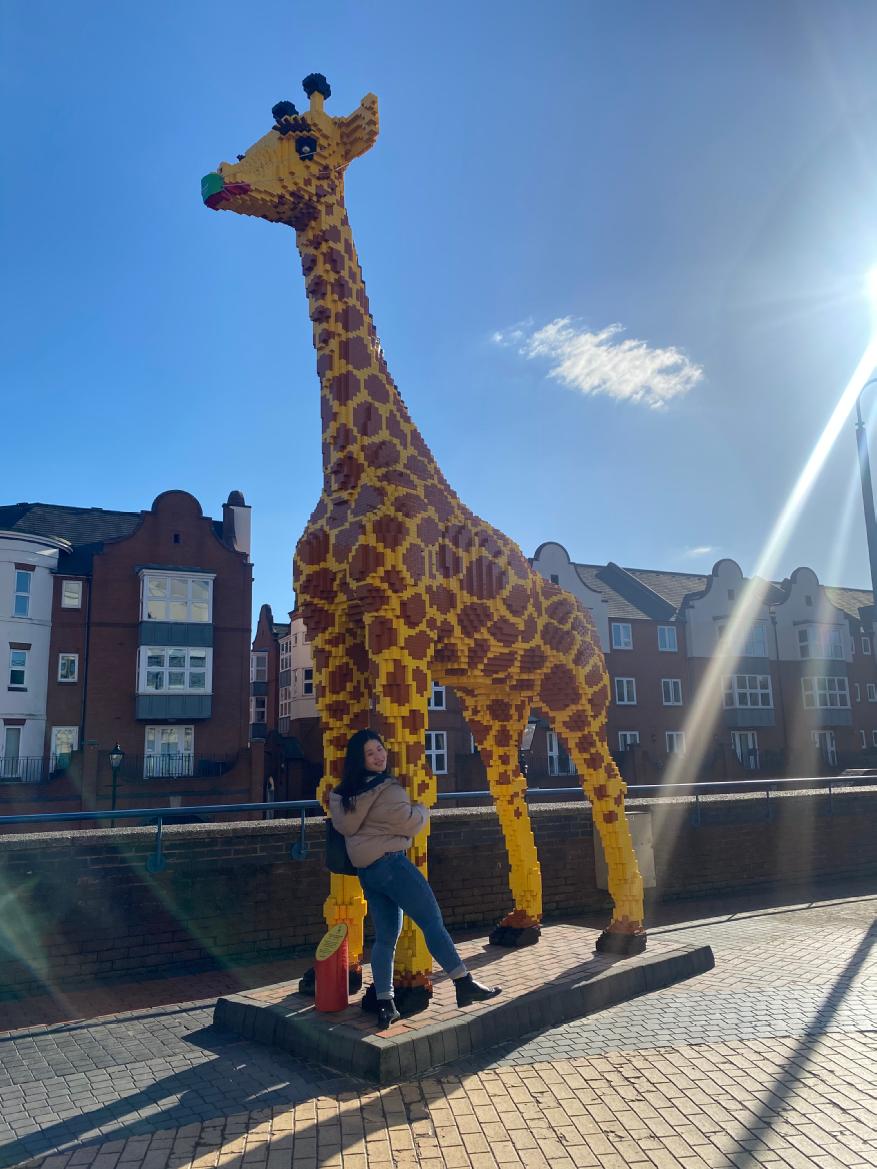
Life during a module week
The reason I say module week in the title is because WMG’s teaching methodology is unique and different from the one we would have generally experienced. Infact that’s what attracted to me apply for WMG’s SCLM course. Usually in our schools or bachelors, a day is allocated with different modules for 1 hour each but here at WMG, we have a module running for an entire week from 9am -6pm. Thus, it works in a block structure, you learn completely about the entire module with no other module topics clashing and it sure is focussed and intensive. It has both its pros and cons and thus, its best to evaluate your suitability before joining the course.
To visualise and understand this methodology better, here is what happens during the first day of Storage and Warehousing module.
9am - 10:30 am
We were introduced to the module, timetable and general guidelines
10:30am – 10:45am Short Break
10:45am - 12:30pm
Lecture on the role of warehousing in supply chain, warehouse trade-offs, importance of stock , significance of location. In-between this lecture, there were inbuild team exercises to keep us engaged and focussed. These activities include group discussion, calculations and presentations.
12:30 – 1:30pm Lunch Break
1:30pm – 3pm
Focused on the types of warehouse operations with industry examples and its requirements. Further discussion on the importance of health and safety – warehouse accidents, hazardous goods, significance of labels and principles of risk assessment
3:00pm – 3:15pm Short Break
3:15pm – 4:45pm
The lecture continued on warehouse processes and flow. We learnt about the warehouse functions and each function in detail with emphasis on lean, inbound and reverse logistics.
4:45pm – 5pm Short Break
5:00pm – 6:30pm
Detailed on ABC classifications, its layout and importance , pareto analysis , picking procedures, value added services and stock turn.
The next four days were more exciting as we learnt from industry guest lecturers and designed and simulated a warehouse all on our own. It was interesting to learn the practical knowledge, real life case studies from industry experts and consultants and also build a warehouse from scratch by calculating and evaluating the measurements while also incorporating all our learning from the week. We concluded the last day with familiarising ourself with the PMA, our in module assessment scores and also received chocolates from our kind professor.
These lectures are engaging and intensive as they run all day long thus the mind is focussed without any distractions in another module or submissions. Usually, it’s exhausting after every day, and I take rest the of the night off in preparation for the next day’s 9am class. And this does work out well as mostly the next week would be free week where you could focus on PMA’s , other activities you might need to complete or social activities.
Janani Alagarsamy
MSc Supply Chain and Logistics Management
Plan A/Plan B/Plan C...
As a postgraduate student, you are often confronted with the question "What are your plans after graduation?" For many, the answer may be straightforward, but for others like me, the answer may be more complicated.
Whether you are looking for a job or whether you do not have any concrete career plans at the moment, it is very reassuring to know that there is an endless amount of guidance and support available from the University, as well as several careers events held throughout the year. During these events, you have the opportunity to learn more about careers within the UK and internationally, as well as network with WMG alumni and professionals who are thriving in the business domain.
It is for this reason that I have recently attended the International Careers Day and would like to share my experience with you. The day started off with a panel of speakers from various educational and professional backgrounds, who shared their experience of looking for a job after graduation, as well as top tips for succeeding in interviews and what to avoid. Some of the key takeaways were being honest about the things you can and can’t do, not overselling yourself and definitely being enthusiastic about the role you have applied for and knowing enough about the company to convince the recruiter you are genuinely interested in working at their company.
The day continued with a series of workshops from which you could choose the ones you were interested in and book attendance in advance. The first one I attended was called ‘’What Questions to expect in Interviews and How to Answer Them”. I found this workshop extremely useful and informative, as it offered a range of resources on tackling those difficult interview questions, such as strengths-based ones, which are usually less predictable than competency-based questions. The presenters also provided information on the newly launched careers platform available to all University of Warwick students, called eCareersGradLink opens in a new window, which provides video examples of both good and poor responses to a range of interview questions, which you can use to practice in advance of any upcoming interviews.
The second workshop I attended was called “Develop your Global Mindset to shine in the Multicultural World of Work” and was focused on developing one’s intercultural awareness and how this skill can be improved in both academic and professional contexts. A combination of quizzes and exercises made this workshop interactive and fun, and it was interesting to see how people perceived situations differently; for instance, for some it was perceived rude to be on the phone at the dinner table, whilst for others this was considered normal. Needless to say that there was no right or wrong answer, and hearing others’ opinions on different behaviours was quite eye-opening.
Apart from the opening panel and various workshops that took place throughout the day, students had the opportunity to have their LinkedIn profile picture taken free of charge by a professional photographer, which is a great opportunity to take advantage of, if you have yet to build your professional LinkedIn profile. First impressions matter, and social platforms, particularly professional ones, can make a world of a difference when you are trying to enter the job market and set yourself apart from the competition.
As an international student myself, I found this event to be very useful for my professional development. It hadn’t crossed my mind that certain situations and behaviours are in some cultures, perceived in a completely different light. And this is what makes us all unique. Also, if preparing for interviews is stressful and draining, just remember that there is a plethora of information at your disposal on how best to prepare for them and pave your way to success.
However, it is also normal to not have your future mapped out yet. Not everyone knows what they would like to do in 5 months or a years’ time and that is okay. Do not panic if your friends have a job and you don’t; this is just part of the process and one that will prepare you for whatever is coming your way after graduation. Don’t forget to give yourself a pat on the back; you have already made it this far and great things lie ahead of you. You just have to be patient, optimistic and look out for opportunities to make the most of the events and resources available to you.
Artemis Panteli
MSc e-Business Management (Digital Marketing)
Setting a new life in the UK
As soon as you arrive in the UK you will need to make a bunch of decisions. Decisions that seam not relevant or life-changing but that will make your life easier and happier. Regarding the phone and data services in my country having a good signal or not will depend on what part of the country you are in, and I think in general it works like that around the world. However, here in the UK, you will have another factor that will affect the service, and it is about being indoors or outdoors. Yes, here you can have a good signal in a town but if you go indoors, you will lose it completely. So, my FIRST TIP will be, to check with the provider before you buy a SIM or plan how is their coverage around the places you will be, Coventry, Leamington Spa. Once you check just go for what works better for you depending on how much data you need.
The last will be a decision that for sure you will need to take the first week you are in the UK, however, with time you will need to choose a bank and bank account. After a lot of research and an Excel document with all the options and variables, I realized that in the past years, banks offered nice benefits for students. However, this year the options were reduced and for international students, the only option was a basic current account. This happened with all the banks, so my decision was just be based on your preference on the name of the bank. Nevertheless, my SECOND TIP is going for the one that has the best customer service. For me, it took weeks trying to open my bank account because the process takes a lot of time or because the bank did not check well my information, or they don’t have quick answers. So, after trying with 4 different banks I found Lloyds, where I went without an appointment, and they opened the bank account the same day.
My THIRD TIP will be to use apple or google pay. Here you will be able to pay mostly everything with it and will make your life easier as you don’t need your wallet with you all the time and you don’t have to be concerned because of cash.
A peek into SCLM course - How I got a Distinction (2 of 2)
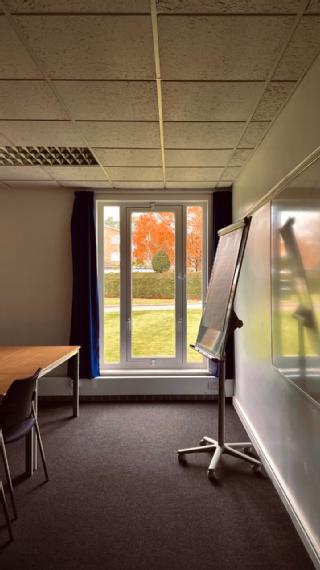
Engineering Management Building, West Wood, University of Warwick
For those looking to join SCLM at WMG, this review of the modules will provide a better understanding of the course structure and teaching methodology. I have detailed on each module based on the lectures, seminar week and PMA experience. It also encompasses tips for writing successful PMA’s which I wish my alumni would have passed on. As promised, here is part 2 of modules I attended in term 2 in which I received a distinction and how you can too!
Transport Techniques and Management
Lecture and Seminar Week
This module was particularly interesting because we moved to in-person modules from here-on this term. We had intensive lecture on the first day covering maritime transport, road rail and intermodal transport, air freight and information technology in transport. The next four days where more engaging and hands-on as we had presentations, games and case studies to understand the transport hubs, use of intermodal transport and outsourcing.
We worked in groups and had ample time to discuss and analyse each activity from global perspectives. I found the activities valuable as I was able to critically evaluate the reason behind decisions and the theory being taught.
PMA Tips
To simply put, the more you research, you more you find information. That’s because eliminating irrelevant information is a task in itself. Though the PMA question was straightforward, it was a challenging as I couldn’t find ample number of relevant information to build my PMA. Thus, I spend numerous hours effectively researching and navigating sources. At circumstances like these, I relied on the lecture notes. It was highly effective as I could create a structure and map my research based on it. Also, since it was my second PMA, I had understood and improved myself on how to tackle PMA’s and received a Distinction!
Global Business and Environment
Lecture and Seminar Week
As the name suggests, I learned about the global supply chain. It was super interesting but also had loads of information to comprehend thus wasn’t too simple. GBE has numerous economical terms and acronyms which was difficult to grasp for someone like me who came from an engineering background. But as always, the fundamentals were introduced in depth and also were clarified by tutors when required thus I was able to quickly follow up with the topics in two days’ time. This module was so valuable in understanding how the global activities, trade, services and world organisations play a critical role in the globalisation of supply chain. I enjoyed learning this module as I learnt various aspects of the world trade and because I was able to master a fairly new subject. I loved learning the current affairs and felt socially more aware. I always had an interest for social studies and history thus digging the past events and evaluating how different countries play a role in what the world is today was absolutely so interesting!
PMA Tips
It is useful to ask the module tutor what their favourite journal and journal database are. This will give you a good insight into what you should be citing in your assignment. For this module, research was fairly uncomplicated as there were abundant perspectives of world leaders, academicians, journal papers, podcasts and government websites detailing on current affairs, trade deals. The complex part is decoding and critically analysing numerous sources to form an opinion to write the PMA. There is no right or wrong answers in this module as it depends on your interest and opinions. Thus, you can use your perspective from the lecture week and experience to form an opinion and use the sub questions from the PMA to clearly structure the PMA. Though I completed this PMA in a short duration, I enjoyed learning, researching and writing the PMA. I succeeded in receiving a distinction by integrating theoretical perspectives with the empirical trends from the UNCTAD World Investment Report. Due to numerous economical terms in place, displaying a clear understanding between terms in the same category such as FDI, M&A, greenfield investments will help in analysing and providing contrasting viewpoints.
Have a successful term 1 at WMG and happy learning!
Janani Alagarsamy
MSc Supply Chain and Logistics Management
A peek into SCLM course (1 of 2)
For those looking to join SCLM at WMG, this review of the modules will provide a better understanding of the course structure and teaching methodology. I have detailed on each module based on the lectures, seminar week and PMA experience. It also encompasses tips for writing successful PMA’s which I wish my alumni would have passed on.
Supply Chain Management
Lecture and Seminar Week
This was the first module that was taught and due to COVID-19 restrictions, we attended the module via synchronous online learning in MS Teams. I enjoyed the topics discussed as this was a great way to slowly introduce us into fundamental aspects of supply chain while focussing on important aspects such as different supply chain models, value and lean supply management, design and planning , supplier relationship and an overview of digitisation of SCM. My lecture week was followed by a three day seminar which revolved around risk and agile supply chain management.
PMA Tips
Working for the PMA was interesting but also challenging. Well, that’s how most PMAs are but this one had the added pressure of tackling to learn and write the first PMA. As my next few weeks were hectic, I had a difficult time managing and getting started with the PMA, but it all did end well. For SCM module, as it covers a wide range of topics, you need to allocate more time in researching the topics and understanding the current viewpoints from research papers and credible websites. Following news articles and high quality journal papers will aid in your PMA conclusion. Including comparison analysis of the PMA topic will be great addition to effectively reflect on your understanding.
Organisations People and Performance
Lecture and Seminar Week
This module highlighted on the human factor and how the minute qualities from employees play a big role in future of the organisation and decision making. I leant about business strategies and effective people management practices. The practical knowledge was backed up with various historical models and strategies which we used for effective analysis of an organisational behaviour
PMA Tips
Effectively using the lecture notes and drawing from relevant historical models will be a suitable strategy to utilise. Moreover, there are excessive information online which might sometime be confusing therefore it is highly recommended to use the library books on organisational behaviour.
To continue reading, here is the Part 2 of a peek into SCLM course - How I got a Distinction
Janani Alagarsamy
MSc Supply Chain and Logistics Management
Read the small print before you sign
How many times have you accepted the terms and conditions before acquiring a service without reading them? How often you look for reviews before buy something?
I will tell you a little bit of my experience with my master and not reading and making proper research. When I was looking for masters it was difficult to find the program I wanted to study, in a country I wanted to live, in a university that I wanted to be part of. So, when I found the Supply Chain and Logistics Management program in the University of Warwick I just ran to apply. I did not care about anything; I remember I thought when I received the offer I will worry about the administrative things.
Yes, of course in the moment I received the offer I forgot to read more about the department methodologies, I forgot to look for people opinions, for groups in Facebook, for blogs like this one where people tell their stories. I forgot about everything, I was so focused on all I had to organize and do to get in here that I forgot to keep calm and read.
So, here is my first tip, keep calm and read about the programs you are applying for.
WMG programs have a special way to deliver courses, where you have one week of intensive classes and other weeks where you “don’t have nothing”. The quotation marks are because, yes you have a lot of things to do, like your assignments or your dissertation, but what I mean is that you don’t have any classes. I can say that thanks God I have enjoyed this way of teaching and it fits good for me and my personality, but I think it would have been nice to be aware of it before and that it was not a surprise.
Regarding the last, my second tip will be, try to be self-aware and critical with you. It is ok if this methodology is not meant for you, it is ok if you do not feel you can study under these timetables and you prefer having classes every week along the term. I won’t tell you everyone can fit because it requires a lot of management of time, and yes, this is a secure place to learn to do it, however, sometimes, there is people that do not feel comfortable and can dislike the program not because of the program itself but because they do not like how it works. So, please think and ask people that knows you if they think you will enjoy it.
And my final and third tip: go on Facebook, Instagram, blogs, everything you can to find groups and information that can be relevant for you before arriving. Additionally, with it you will have already some friends and contacts to hang out or to ask questions and not feeling alone in those first weeks.
Juanita Pachon
MSc in Supply Chain and Logistics Management
Time management and best practices for success in Term 1 (2 of 2)
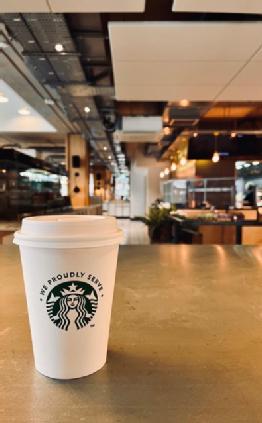
Starbucks, NAIC Cafe University of Warwick
Welcome back! The previous post (Part 1Link opens in a new window) consisted all about managing the week long lectures and how to start and effectively write a PMA. But that's not all that will need to be tackled. This Part 2 contains strategies that you could follow to select a project and for tacking job interviews admist lectures.
How to select a project without having any background knowledge?
We were introduced to choose our project on the first month of our course. It sure was overwhelming but with little bit of strategy and research, it is possible to choose a topic of interest.
· Firstly, it is useful to select the project as soon as possible as the competition between WMG students for one project that you might be interested will be high.
· Secondly, Shortlist interesting projects and evaluate them according to your level of interest , feasibility and future career goals.
· Thirdly, approach the shortlisted supervisors one by one for interviews and display your ability and reason for interest on the selected project. Also use the
opportunity to evaluate your connection and suitability with the supervisor.
· Finally, when satisfied with the interview , apply for one project and wait for the response to apply for the next preferred project (As you could get
allocated to the first project you apply). It is also essential to note your preference of supervisor – external or internal.
What are the interview questions to ask at the first project supervisor meeting?
1. Discuss the overall research objective of the project and clarify their expectations and viewpoint to confirm if it aligns with your aim.
2. Discuss their availability and how the intend to provide supervision such as through online/offline meetings, weekly updates, monthly face to face meetings.
3. If there is a plan in mind, consider the methodology - qualitative or quantitative approach to be used in the project and receive their feedback.
4. Ask technical questions to understand their expertise, previous experiences and projects and their affiliation to the selected topic in order to plan where they can provide their highest involvement.
How to handle job interviews and other- non-academic activities during lectures?
In simple words, with determination and hard work and in detail, timing your schedule and dedicating at least 2 hours daily or 4-5 hours weekly in applying, responding to video interviews, submitting psychometric tests, preparing for interviews and assessment centres. This allocated time depends on your high priority activities and deadlines and thus being flexible with tasks throughout the day but making sure all the tasks are completed will help progress each day.
The course is structured to provide ample break in between so getting the most of that time will benefit in the long run. As it’s a one year course, it is expected to be an intensive year, but it is not necessary to get burned out in the process. Focus on taking necessary breaks when needed and binge watch a Netflix series if interested, spend few days to do anything other than work and also explore Coventry. It freshens your mind and keeps you on track before your next module.
Welcome to Warwick and have a productive first term at WMG :)
Janani Alagarsamy
MSc Supply Chain and Logistics Management
Time management and best practices for success in Term 1 (1 of 2)
I completed four modules between October to December and managed to get started with project selection and extra curriculars. Looking back, the hardest task was navigating how to write my first PMA and understanding its requirements. Coming from a background where I wrote 25 pages of answers for three hour examinations, writing an assignment of 4000 words in a concise and detailed manner was challenging. Thus, to make this process easier for you, I have written best practices to follow below in a question and answer format so you can save time and get started with your MSc journey!
How to attend the intensive 9am to 6:30pm lectures ?
· Preparation is key. Understanding the background of the module will help to settle in with the concepts. Check the Moodle for the resources available and
familiarise with the lectures, notes, reading lists.
· The module tutors have an expectation of the PMA from students and would provide hints and tips during the lectures. Thus, make sure to take brief notes
as this will aid in PMA research and writing.
· Participate. Taking initiative during group work helps to understand different viewpoints of your team and the overall concept better. Critically analyse each
topic and gather knowledge and information from credible sources while presenting your group work.
What is the best time to start the PMA?
After completion of every module, we are provided with 4 weeks of time to submit the PMA. The amount of time might seem good enough but it’s important to remember you would have other modules with those weeks and will usually have 2 weeks of time in the end. The important trick to implement is, once you are detailed with your PMA question at the end of the module, start structuring your PMA with the information you consider to write and analyse. With the knowledge from lectures and group activity , you will have better memory and vast information to structure your work.
How to structure the PMA?
It’s worth attending the SPA module on writing your PMA. They provide essential and detailed information which is highly helpful. In addition to their recommendations, I would suggest to first derive your viewpoint of the question and frame each subsection to complement your final conclusion. The research papers, books and other sources have enormous of information with various conclusion thus its always efficient and beneficial to research for what topic you would want to write than to research all or different topics of the same information which might leave you confused. It is appreciated to use contrasting viewpoints to analyse and reach a conclusion but to achieve that it is empirical to decide the main viewpoint you would want to contrast with.
How to manage two or more modules/PMA?
Acknowledging the intensive nature of the course and preparing for the challenge helps to calm the nerves. The WMG learning approach is systematic that each module would not clash with one other in the same week, but you might rarely be allocated for the weeklong modules without a break in between and similarly have PMA deadlines very close to each other.
The key to tackle that is to start your research and familiarise yourself during the lecture week and use the afterhours. I found it beneficial to understand the difficulty of the module early on to schedule my time around the week. For the PMA’s, fragment your PMA questions and approach to answer to each question in one or two paragraphs. Find if your preference is to work on two PMAs at once or complete in one go. It will help while scheduling your time and offer the flexibility to incorporate more personal work.
Check out the Part 2 of Time management and best practices for success in Term 1 which talks about the project selection process and managing job interviews.

Library, University of Warwick
Janani Alagarsamy
MSc Supply Chain and Logistics Management
When you are in Europe everything is right around the corner
Hey! Just little reminder that you won’t be nearest to Europe than now because you are inside it! So my first tip, is TRAVEL! Travel a lot! Once you are in the continent traveling is not very expensive and it is really easy by plane, train or bus. Additionally, some of us do not need visa but if you need to apply for it from the UK it is usually very fast and with it you can travel all around the continent. So, please make the most with your time. WMG gives you the opportunity to manage your time, so you will be able to travel and study from any part of the world.
I know as a student we have always to make the most with a tight budget, so my second tip will be check tickets and different places with time. You will be able to fly for £30 to Ireland, Oslo, Paris but if you check bus tickets you might find a cheaper offer, everything will depend on how comfortable you want to be and how much time you want to spend.
Finally, my third tip will be to enjoy traveling with your classmates but do not forget you can always travel by yourself and enjoy it as well. You will find friends that might be able to travel with you and you can share expenses like lodgement, food, and nice memories! But if you cannot find someone, remember you can travel and enjoy the time with yourself, do things that you like and meet new people. Remember the continent is rich in culture, good food and nice people so just be open to the experience. This will make you good, not just for your personal development but traveling out of Coventry for some time is good and specially in winter, the weather will be much better if you go a little bit to the south.
Juanita Pachon
MSc in Supply Chain and Logistics Management
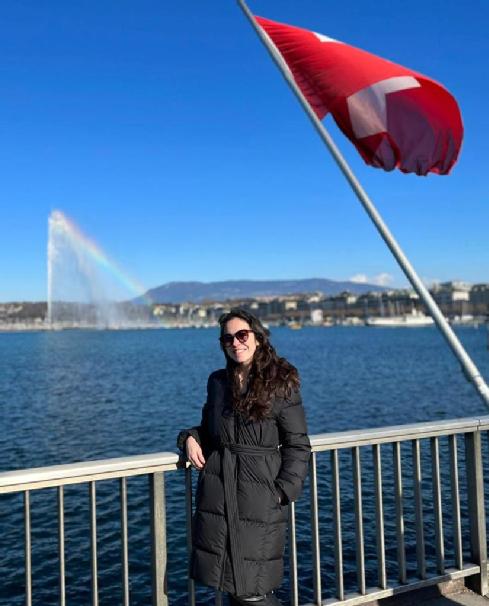
New Adventure: What is the Experience of Being the Representative of WMG in IFSTAL?
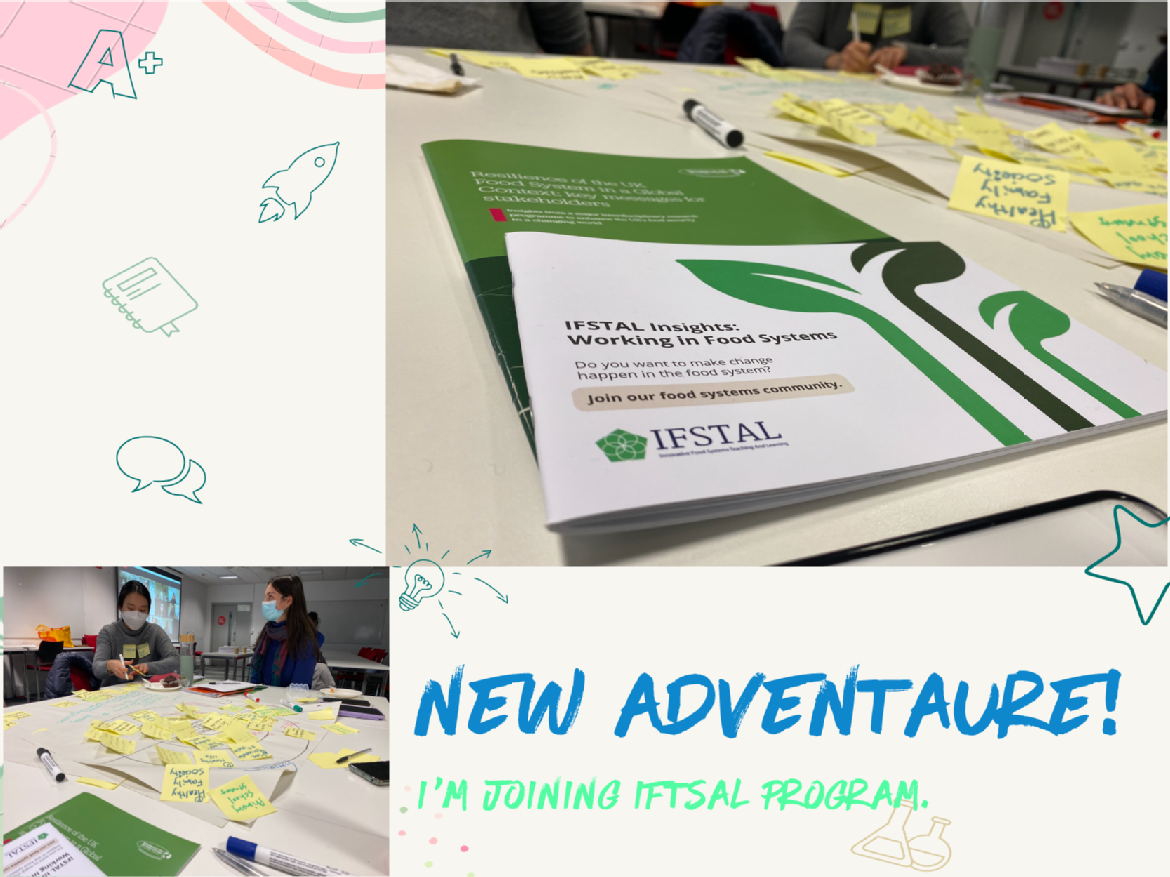
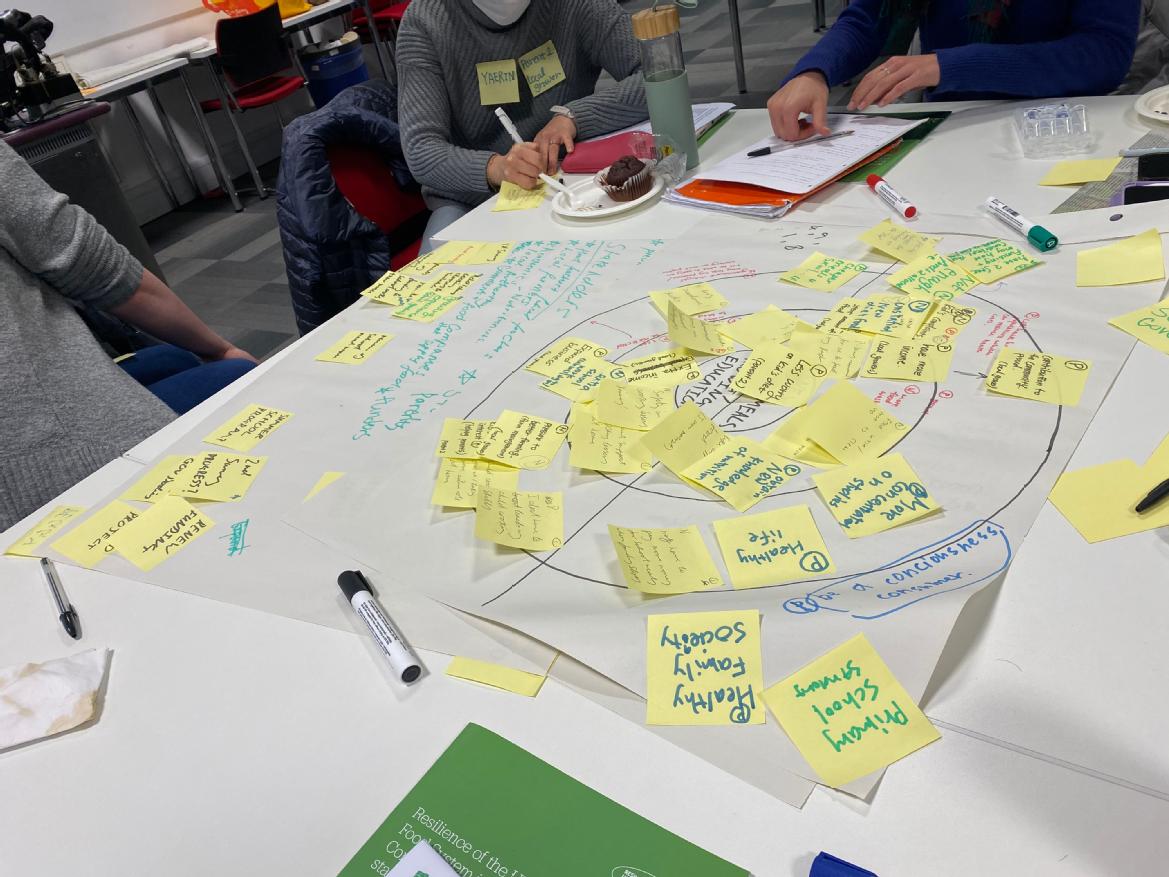
Studying at Warwick - Where I Study and the Resources I Use
What can we do at Warwick apart from our daily classes? The University has a wealth of resources, and we can take on different identities. For example, going to a movie at the Warwick Arts Centre, swimming in the athlete level swimming pool, and so on. Of course, for the most part, we are students, and we spend most of our days - studying. Don't be nervous, I don't want to tell you about my experiences on the course here lol, that would be boring and the lecturer in charge of the course is much more professional than me. I want to share some stories about how to use Warwick's resources to find out what interests you, and about studying on Warwick's campus.
1. Where do I look for resources in Warwick?
Firstly, I am interested in potential job opportunities, and I regularly check out Myadvantage_Studnts_Jobs where there are job postings from all over the world (mainly in the UK) for both long term jobs and short-term internships. Secondly, keep an eye out for emails and Teams messages from WMG, as each discipline often organises events on CV revision, how to talk to interviewers, etc. In your spare time, choose to attend events within your major that interest you, even if it's just for a chat, I think it's good to make some friends!

WMG EngBM Course Social
Secondly, I will go through Warwick IT_Services Traning to learn something about IT softwares. Everyone can't live without the internet, it will be great to learn some software of interest when we are free. For example, I chose to learn Nvivo, a statistical analysis software on literature collection, which is used to help me filter and record the literature for my graduation project. Moreover, I plan to attend some more R language courses sometime, which I am sure will be of great help in the future! Plus, these training courses are free, so why not?
2. Where do I study
Too bored to study at home? Can't control yourself effectively? I often go to the Learning hub on the first floor of the Junction Building to study, as there is a lot of student learning and group activities there, and the sound of discussion always keeps me awake and motivated. Sometimes there are Warwick societies giving out free coffee and snacks there, so if you like a bit of a buzz, study at Junction with your friends.
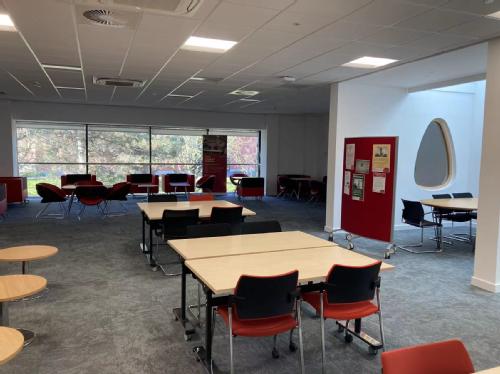
Junction PG hub
If you prefer to study alone, the 3rd to 5th floor of the Warwick library is a great place to study, a quiet study area where students can have their own study space, like a cubbyhole. Here you can watch the sunset through the windows and get a coffee and a bite to eat in the restaurant downstairs whenever you want. I always like to sit here with my headphones on and study in silence for a long time.
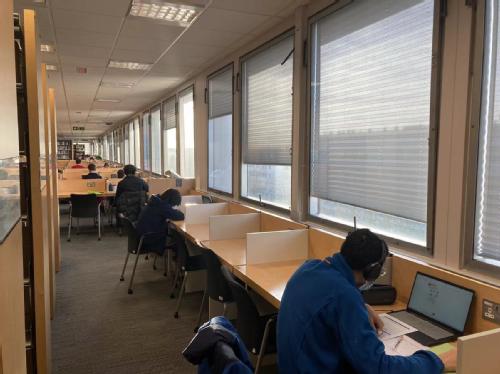
University of Warwick Library
There are plenty of places to study on campus, bring your student card and find your own study base!
Danyang Chen
MSc Engineering Business Management
Managing Group Dynamics
As a WMG student, you will find that significant emphasis is given on group work and group assignments. This is called the IMA; In-Module-Activity. This is not only part of your learning experience at Warwick, but also a means to prepare you for your future professional career.
You will often find yourself working with people from different countries, who speak a different language and are from different educational backgrounds. As such, it goes without saying that group work and collaboration can sometimes be a tricky mission. Whether you dislike group work or get really excited about it, here are some tips to guide you through the challenging yet rewarding task of working with others.
1. Don’t be afraid to make the first step
When you see your group members kind of keep to themselves, take the initiative to introduce yourself and show how approachable you are. This way, you will encourage your team to open up and follow your lead by introducing themselves and ‘breaking the ice’. Once everyone feels more comfortable in the team, it will then be easier to define roles and responsibilities, allocate tasks and work together towards a common goal. Don’t be afraid to lead by example; be confident in sharing what you hope the group outcome will be and motivate others in your team.
2. Communicate openly
Open communication is vital to fostering good group dynamics, therefore you need to ensure that everyone is communicating openly and clearly. Emails and shared documents are a good starting point to make sure everyone is on the same page, particularly when working with group members who may be unable to be physically present during team meetings.
3. Be respectful
Here at Warwick, you will find a mixture of a diverse cultural blend, which is something I have found to enhance the uniqueness of the student experience. It is a great opportunity to interact with people and cultures far from your own, and maybe learn something about them that a quick Google search may not easily divulge. As such, it is important to recognise that different cultural backgrounds may sometimes mean different views and opinions, therefore it is worthwhile to keep an open mind and respect others’ perspectives.
4. Don’t listen to reply-listen to understand
Although team conflict and disagreements are sometimes to be expected, it is important to be an active listener. When you find yourself disagreeing with a team member’s views, make sure you listen to understand where they are coming from and why they believe something should be done in a certain way. Do not just wait for them to finish so that you can express your contradictory views; listen to them to fully comprehend their views and you may find you need to adjust your approach around their ideas and suggestions.
However…
Be careful of frequent unanimous decisions, as these may be an indication that people may lack the confidence to present opposing viewpoints to a dominant idea within the group. Although an agreement needs to be reached at the end of the day, it is important that everyone gets to share their thoughts and opinions on the topic before reaching a conclusion. If you feel that quieter team members tend to be overwhelmed by opinionated team members, then you may need to consider finding new ways to encourage them to communicate their views with the rest of the team. It is important that everyone feels heard and included.
Indeed, group work is a great way to cultivate not only teamwork skills, but also your creativity and problem-solving capabilities; skills which are not only extremely valuable in the professional domain, but also in life in general. Despite the occasional challenges that may arise, working with others is a great way of meeting new people and potentially building life-long friendships. Therefore, my advice to you would be to not underestimate the innumerable benefits of working with others. Great things are rarely done in isolation and usually take a team of extraordinary individuals and some serious brainstorming activity!
Artemis Panteli
MSc e-Business Management (Digital Marketing)
Are We All Speaking English?
Hi everyone,
Today I wanted to share my experience as a Colombian, who was taught American English as a second language, living in the UK. I went to a bilingual school where I learned to write color instead of colour, and they taught me how to analyze, not analise. I also grew up watching American TV (mostly Friends because I am a big fan), through which I learned US slang like “cool” and “awesome”. Overall, I considered I had a good level of English and that I was capable of understanding and having fluent conversations with friends, family, and even in school.
That was until I started living in the UK and realised the English I learned is very different from the one they speak here. It’s not only about the accent, or the fact that some words are spelled differently, even though they are pronounced the same (example: in the UK you write behaviour, not behavior). It’s about how different the vocabulary can be. At the beginning it can be confusing and kind of frustrating because you feel you don’t understand anything. But the fact is that, with time, you start getting used to a whole new world of words and slang and it is fun to see how different one language can be from one country to the other. (This also happens with Spanish. Just get a Colombian and a Chilean together and you’ll know what I mean)
For me, the best way to cope with this language “barrier” is by doing a list of the new British words I learn and writing their “American” synonym. And this is what I have so far:
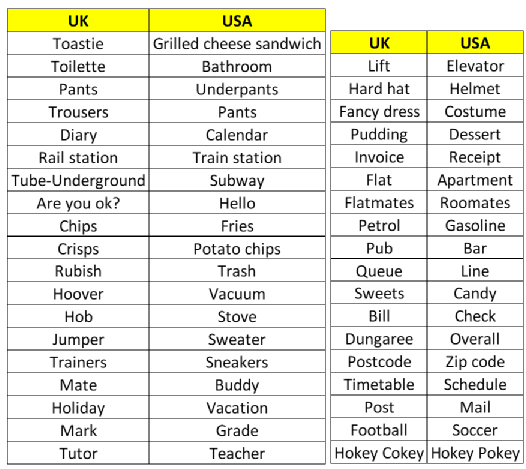
As my master’s journey continues, I am looking forward to expanding my British dictionary and adjusting my English to the local culture, as it is all part of the experience of learning about and adapting to the British life!
Have a great week!
Mariana Amador
MSc e-Business Management (Digital Marketing)
How you can get inspired at the Warwick Arts Centre
Hello and Welcome, my friends😄
It has been raining with heavy wind whole this week.
I thought I got used to this typical UK weather, but I still felt a bit gloomy.
In the previous content, I introduced Warwick sports hub to you!
Have you guys seen and searched for a possible new hobby?😀
Today, I want to share the valuable experiences I had in Warwick with you.
When you go to the piazza or take off the bus at the interchange stop, you can see the very modern building called ‘Warwick Arts CentreLink opens in a new window’.
Warwick Arts Centre greets guests at night with pretty lights!
As you may not know, there are myriads of art-related events in this building.
One of my fabulous experiences in the art centre was with the London Philharmonic Orchestra.
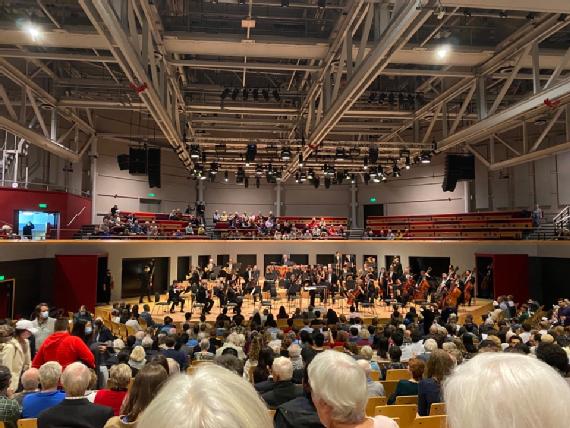
I would have never expected such a world-famous orchestra to be performing two minutes away from my accommodation!
I could enjoy world-class music played by the world’s finest orchestra without going to London or paying an enormous fee.
With the reduced fee, I could get a student discount and take a seat to view the whole orchestra at a glance.
I was so glad to enjoy this fantastic show walking only 2 minutes from my accommodation! The solo violin playing was impressive; after his playing finished, all audience acclaimed!
Besides this fantastic orchestra, I would recommend watching a movie here.
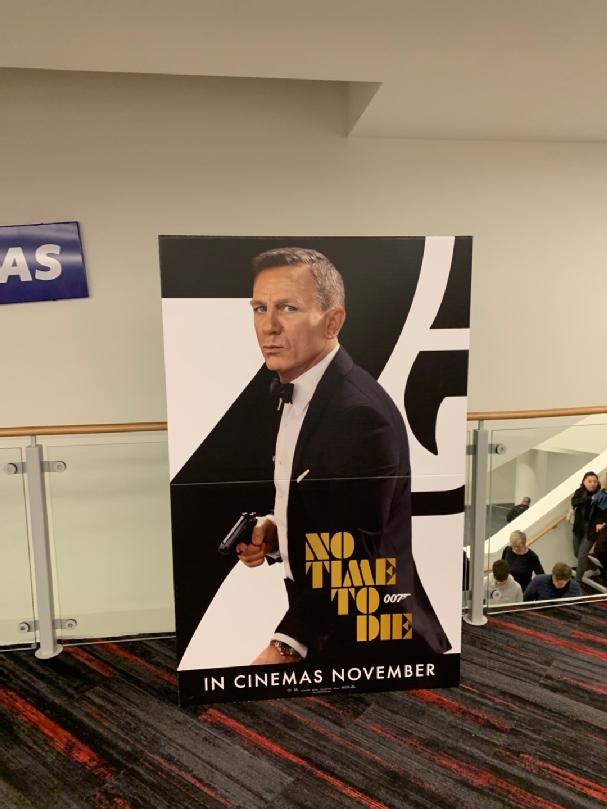
Where else is the best place to have the 007 experience than England, the home of MI6?
I watched ‘No time to die’ the first day when it was released! The newest facilities, including cosy seats and a big screen, help you focus on film!
And here is a tip!
You can get a student discount or a young adult discount when you book a ticket! Search and find this chance!!
Warwick art centre provides various artistic experiences such as exhibitions, film, orchestra and other events.
Meet diverse programs at the Warwick arts centre!
MSc eBusiness Management
Jihyun Park
You have been accepted! Yay! What's next?
You have just received the coveted letter of acceptance from WMG. Well done! Now, what’s next?
If you do not already know, WMG is offering the WMG Excellence Scholarship to students commencing their study on full-time MSc programs in October 2022. The WMG Excellence Scholarship is a merit-based award offered on a competitive basis. The application is judged on reasons for study, past academic achievement, professional experience, and your vision for the future. As a WMG Excellence Scholarship awardee myself, read on for my top tips on nailing your scholarship application.
1. Dare to dream BIG
The first question is all about your motivations for studying the particular MSc course you have applied for, as well as your future plans after graduation. This can be a daunting question; thinking about where you see yourself in the next 5 years, when you are unsure of what the next day has in store for you. It is even harder responding to this question in professional interviews (I, myself can vouch my detest for this question). But take some time to think about the question before starting to type your response. Where do you see yourself? Studying? Working? Traveling? What excites you? What are you passionate about? What is the difference you would like to make in the world? Let your imagination run wild and free and think about your greatest ambitions and desires. Be fearless, imaginative, and bold. There really is no wrong answer and the more creative, the better. If you are passionate about sustainability and environmental awareness, then write about an ethical organisation you would see yourself working at. If you have seen a campaign by a brand that resonated with you, then write about how you would have liked to be a part of the marketing team that pulled it together. As cliché as it may sound, the sky really is the limit.
2. Not the time to be modest
The second question focuses on your past experience, which can be either professional or voluntary, as well as any extra-curricular activities you have been involved in and how these relate to your MSc program. This is the time to talk about all the skills you have amassed from previous work experience; these can be great written and communication skills, which will help you in assignment-writing and teamwork, or it can be volunteering and the great problem-solving and time-management skills you acquired. Whatever the experience, make sure to explain the situation, provide examples and relate these back to the course you have applied for. In this way, you will demonstrate great self-awareness about your current skill level, as well as what you hope to gain through the course you have applied for and how it will help you cultivate existing skills and new ones. Moreover, extra-curricular activities, such as sports and arts are definitely worth mentioning. If you have been part of a sports team, make sure to mention how you have developed the ability to work well with others, whereas if you are more on the ‘artsy’ side, make sure to talk about your creative skills and how these can be beneficial to your course. Remember: everyone has a talent and whatever yours may be, make sure your passion and excitement are reflected through your writing.
3. Be yourself
Lastly, and most importantly, be yourself. It may seem obvious but being yourself is the most important tip in succeeding, not only in the scholarship selection process, but in life in general. Even though this is a written application, I can tell you with utmost certainty that the person reading it will be able to understand whether you are genuinely passionate about the things you have mentioned. It is paramount that you are truly invested in achieving your vision, even if you do not have concrete career plans at the moment. Being authentic is far more important than pretending to have achieved something you have not. Confidence and honesty can be echoed through your writing and will increase your likelihood of success.
In order to be considered, it is important that you submit your scholarship application within four weeks of receiving your offer. For more detailed information about the application and eligibility criteria, please follow this linkLink opens in a new window.
I hope you find these tips useful and that you feel more prepared to tackle the application questions. Whatever the outcome, please remember you have had to go through quite a lengthy application process and have been offered a place to study at a world-class university. This is no small feat.
Best of luck!
Artemis Panteli
MSc e-Business Management (Digital Marketing)
Welcome to e-BM! Welcome to the Course Social!
Do you want to begin your term with remarkable experience?
Attend WMG Course Social!
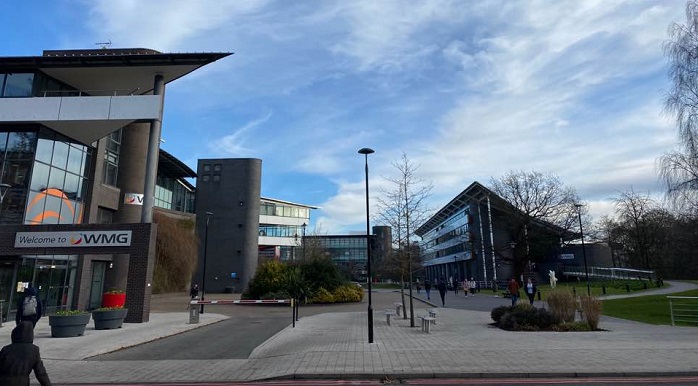
Now officially, Term 2 has started a month, and the sunset is getting later compared to December.
Today, I will introduce a fantastic event you must attend as a WMG student.
At the beginning of term, e-Business Management held a course social event having dinner with course mates and tutors. It is a great chance to get together with coursemates in an exciting and relaxed atmosphere. In addition, you can enjoy a meal and participate in various social games with delightful talk with friends and tutors.
Both of course social events were beautiful experiences to me, but each had a pretty different mood compared with the two events.
Firstly, in the Term 1 course social, you could meet all eBM tutors and your course mates for the first time. The module hadn’t yet started at that time, and there was no chance to meet your colleagues and even other WMG students in person. Almost all eBM students and ITM students, regardless of specialisms, congregated in Roots building and had a wonderful Indian meal together. Having social activities and games with tutors and friends was an excellent opportunity to get to know and have conversations with tutors and coursemates. After finishing the event, you could also feel a sense of belonging as a WMG master’s student. And friends who became acquainted with it are helpful to exchange some tips before starting modules.
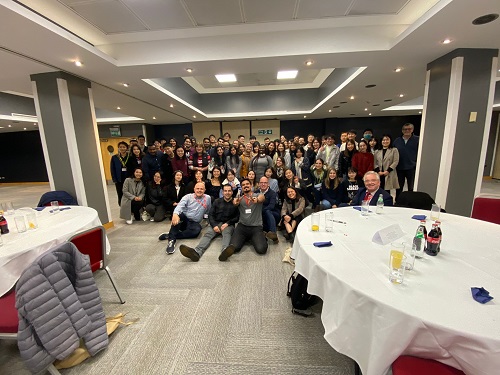
The term two events were quite different. We, tutors and friends, already spent one period together to feel more manageable than the previous one. You can have conversations endlessly or dance to the music. The two glasses of drinks and chips & burgers are enough to have an incredible experience with eBM friends. Among busy and tired academic lives, course social helps you to catch up with other specialism students and relieve your academic pressures in a while.
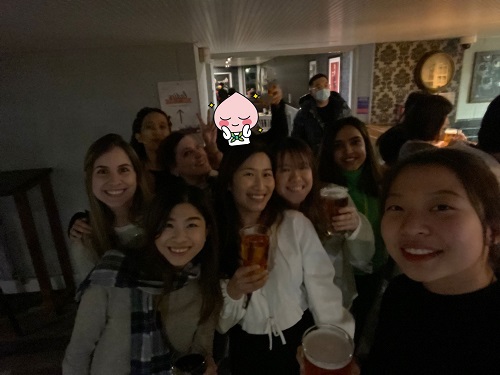
If you see a notice of course social event, Do not forget to book this lovely event!
MSc e-Business Management
Ji Hyun Park
Active Movement to get stronger and feel happier!
Hello, my friends!
For postgraduate students, health is as important as academic achievement. You can concentrate on your work when your health supports.
Today, I would like to recommend various sports that you can work out in Warwick.
I hope my experiences in the sports hub may help you decide on your new hobbies and be active in life in Warwick.
Do you have any interest in sports, or are you hesitating which sports you choose? A modern and fancy building called Warwick Sports and Wellness HubLink opens in a new window in Warwick is located adjacent to Heronbank residences. There is a range of sports you can enjoy including gym, fitness, swimming and climbing and you have an opportunity to experience these sports freely on the welcome week. On the welcome week, you will receive a timetable that you can freely join to try diverse leisure activities and meet other sports-lover friends.
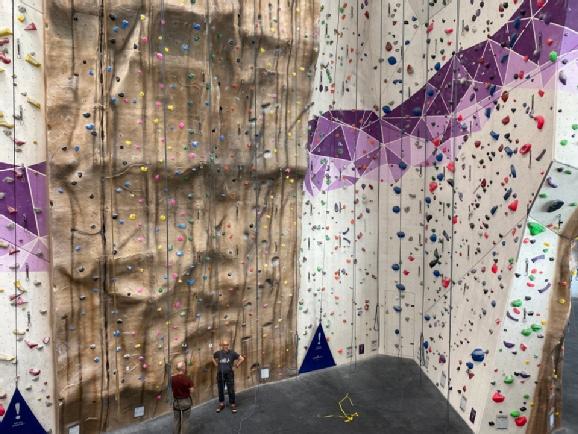
When you enter this sports hub, you will be overwhelmed by the excellent quality facilities, especially the climbing wall on your right side. Don’t worry that you haven’t had any experience in sports. When I lived in Korea, Climbing was unfamiliar to me, but I always was curious about these sports. I was pleased to try a taster session in October during the welcome week. You will enjoy this safely with a detailed explanation.
I tried several enjoyable sports with the Warwick society during the taster week.
<Racquet Sports>
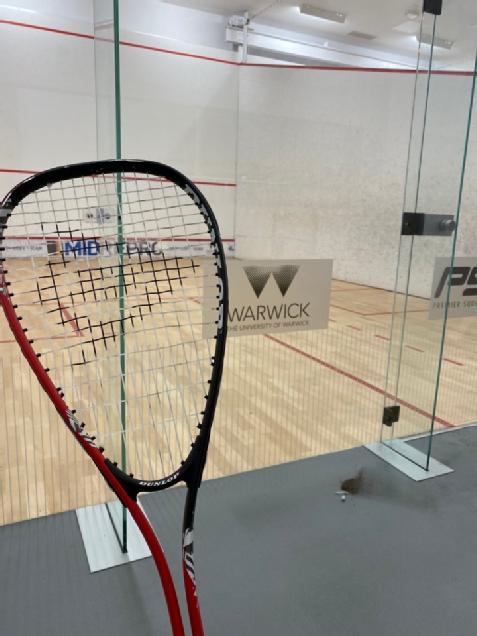
You guys already knew that squash is originated from the UK. As you arrive in the UK, playing squash in the squash home would be a great experience. Sports hub has several rooms for playing squash across the climbing wall, and squash society also lends racquets and teach us how to play. I could attend two times to play squash even though I am not good at playing it. Usually, racquets sports must play at least two players facing each other. This sport is new to me because squash can play one player facing the wall. I could not predict how the ball would serve to me bouncing the wall, and this point was fascinated to me.
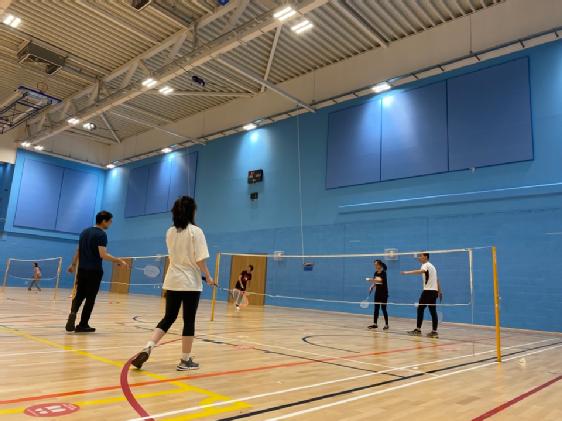
If you buy inclusive membership in a sports hub, you can book a badminton court and borrow shuttle corks and racquets for a small charge. My flatmates and I have played badminton once a week for flat social activity and enhanced physical strengths. You may play badminton easily, and it is an excellent way to make pleasant memories and ease academic stress with your friends.
To give a small tip!
The Badminton slot is quickly booked up on weekends. Book the space early or utilise the court on weekdays if you plan to play badminton!
<Fencing>
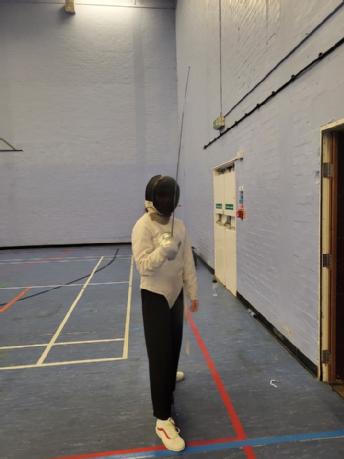
For me, Fencing is an unapproachable sport but, there is a fencing society in Warwick, and I could experience this attractive sport. You can wear the uniform and helmet and have a chance to hold different types of knives. After warm-up exercising, students can do the short match or practice match with professional gear. You will be refreshed and engage with new friends finishing the whole session.
Do you have any interest in sports, or are you hesitating which sports you choose?
Please do not miss the chance to join sports society or membership in Warwick.
I recommend you attempt numerous sports besides what I had tried and promote your fitness in Warwick
MSc e-Business Management
Jihyun Park
Home Away From Home
It’s been three months since I started my life as a master’s student in Coventry and I started settling into a new culture. I’m not going to lie to you: as an international student, this is challenging, but also very enriching. For me, the first month just felt like very hectic vacation, but then I realised I was not going back to Colombia soon, and that this is my new HOME. Yes, home in capital letters, because I think settling in is a process of building a home away from home.
Of course, I was very overwhelmed at the beginning. Just the travelling process (in the middle of a pandemic) implied so many things: getting my Visa, figuring out if I had to quarantine or not, packing, saying goodbye to my family and the things I know and love the most, guaranteeing I didn’t get infected with Covid (yes, to me this was very stressful) … I didn’t even know what to expect of the university and the city because I had only seen pictures. And then I arrived, and what I had been preparing for almost two years, suddenly became real! Some things were just as I imagined, some were not (good and bad), which is why it is so important to always have an open mind. It’s ok and normal to have expectations, but don’t be disappointed if something is not exactly as you wanted it to be: that is part of the experience and at the end, we are very capable of adapting.
As the days went by, I started to get to know the city better and making my flat a homey place, where I could feel happy to return to after a long day of lectures. Don’t underestimate the importance of having a cosy and well-equipped room or flat: decorate it with your style, put some pictures of your family, go out and buy your pans, towels, utensils, and everything you might need to sleep, cook, and eat. It will help you develop a sentiment of establishing a home and making it your own.
But a home is not just about the place where you eat and sleep: it’s also about your day-to-day activities and the people you share them with. This is why, for me, settling in has also implied meeting new people and establishing a new routine here in Coventry. I was very anxious about making new friends, but, as it turns out, everyone is going through the same process as you and is willing to meet new people. After a few days, I realised it just takes one “Hello, where are you from?” to meet someone new. So, I tell you: attend socials and events, talk to your classmates, your neighbours… That way, you can start forming your family for your new home!
Moreover, during the past few months, I have figured out the importance of having a routine, just like I would in Colombia. I’m not saying you have to do the exact same thing every day, but something as simple as joining a gym and exercising in the afternoons, or knowing every Sunday I (try to) do my laundry and go buy all the fruits and vegetables I will need for the next week, has been very important for me to pass from that stage of: “you’re on vacation”, to “you now live in Coventry”. It may sound silly, but by doing familiar and regular things in a new environment, you increasingly get more comfortable and feel more at home.
Today, after three months, I can tell you Coventry is my home. I still get homesick sometimes (Christmas was a very emotional holiday for me), but that doesn’t mean I don’t feel at home here. I can’t wait to be back in my flat after a long day, see my friends in class, or go out with my friends on the weekends, because, after all, this is my home away from home!

Mariana Amador
MSc e-Business Management (Digital Marketing)
5 TIPS TO GET YOU THROUGH YOUR PMA
When you study at WMG, PMA (post-module assignments) are big part of your academic routine. After every module, you will be required to submit one and, most of the time, they will account for most of your final mark, so clearly it is something to want to invest time and effort in to get the best mark possible. It can be overwhelming at first, whether you have just finished your undergraduate, or if, like me, are returning to study after working for some time…
But after submitting three PMAs, I have learned there are ways to make the process easier and more efficient. So here are five tips I can give you:
1. Read and re-read the question: understanding what you’re being asked is everything. Before starting your research or any writing, be sure you read the question and marking guidelines several times so that you know exactly where you are heading and what you should be doing: what is the problem you should resolve? What is the industry? What frameworks should you be using? Are you requested to write an essay or a business report? Once you know your objective, the path will be much clearer, and you won’t waste any time reading irrelevant articles or understanding unnecessary theories.
2. There are no dumb questions: as students, we tend to be believe asking questions means we are lost and weak, but, trust me, asking the correct question might make a difference between a merit and a distinction. Tutors are willing to answer every question you have because they expect you to do well and like students to be engaged with their PMA. So just approach them face-to-face or online and I can assure you they will help you clarify any doubts you have. Just remember: the key is to ask the right questions!
3. Take notes and use a reference manager: this can make a huge difference in how much time you take to write your PMA. While doing your research, make sure to take notes and highlight relevant ideas, whether it is in a notebook, OneNote, Word… Whatever works for you is fine, but the last thing you want is being stuck in your writing because you forgot where you read what… Also, make your life easier and use a reference manager like End Note or Mendeley. Again, whichever works for you is perfectly fine, but having all your references at reach and being able to cite them while you write is timesaving.
4. Make an outline: this is something you might have heard several times, but to me, it is very important. After researching, you have much information in your brain, and it can be hard to know where to begin. That’s what the outline is for: it is helps you synthesize your findings by defining the key sections of your PMA. It also guarantees there is a coherence through it all. Again, how you do it is up to you (Post Its, notepad, OneNote…), but do it.
5. Manage your time: it sounds cliché, but I think it is what most students struggle with. You will need a plan to know when you are going to work on your PMA while you attend lectures, work on your dissertation, exercise, meet your friends, etc. Finding time for everything is hard, but achievable if you set deadlines (e.g., by this day, I will be done with research) and meet them. Good planning will give you plenty of time to write a good PMA, proofread it and submit it with enough time (don’t submit it 10 minutes before the deadline because chances are something is going to happen (Murphy’s Law)).
BONUS TIP: Celebrate your achievement! When you’re done with your PMA, celebrate and relax. You’re officially done with a module and one step closer to getting your master’s degree, so go out with your friends, watch a movie, have a good meal, or whatever you like, because you deserve it!
I can tell you, writing your PMAs gets easier with time. I hope these tips are helpful and, most importantly, that they make your PMA writing more enjoyable and gratifying!
Mariana Amador
MSc e-Business Management (Digital Marketing)

My everyday life – during a module
Hey again,
In case you don’t know that already and haven’t read my previous post, here comes a short introductory explanation: my Master's programme is structured in such a way that we have the modules in blocks. So, we have a module for 1-2 weeks at a time (depending on the module) and then usually a few weeks off in which we can deal with post-module assignments (PMAs) and the Master's project. Whether and how much time we have between two modules is not fixed and also depends, for example, on which elective modules we have chosen.
I now want to give you an inside about what my day looked like on average during the modules after I completed 4 of them.
7:00 am: My alarm usually goes off at 07:00 so I can get up and have breakfast in peace and quiet.
08:30 am: I leave my house at around 08:30 so that I am on campus roughly 10 minutes early and therefore ready to start working punctually at the start of lectures at 09:00 a.m.
09:00-10:30 am: first lesson block. It is really important to say that not every module has such lecture blocks every day and thus not necessarily such firmly scheduled breaks that follow. When we are in group work, for example, we can, of course, arrange our own breaks. So this is just an example of what it often looked like in my modules so far.
Short break
until 12:30 pm: second lesson block. Again: not necessarily lectures, could also be group work on case studies
12:30-01:30 pm: lunch break
After 1:30 pm: lectures again or group work (or both), of course with breaks in between. When exactly our day ends always varies, in my previous module usually between 05:00 and 06:30 pm.
During the module weeks, I usually don't do that much else, often I just cook my lunch for the next day in the evening and chill at home with my flatmates. If we finish our work a bit earlier, I might meet friends for dinner or try to motivate myself to go to the gym. But to be honest, these module weeks, as exciting as the module may be, can be very exhausting, so I tend to put such things on the weekend during this time. This may seem a little confusing at first glance, but in the end, I always had the feeling that the modules just flew past me.
Henrike
MSc International Technology Management
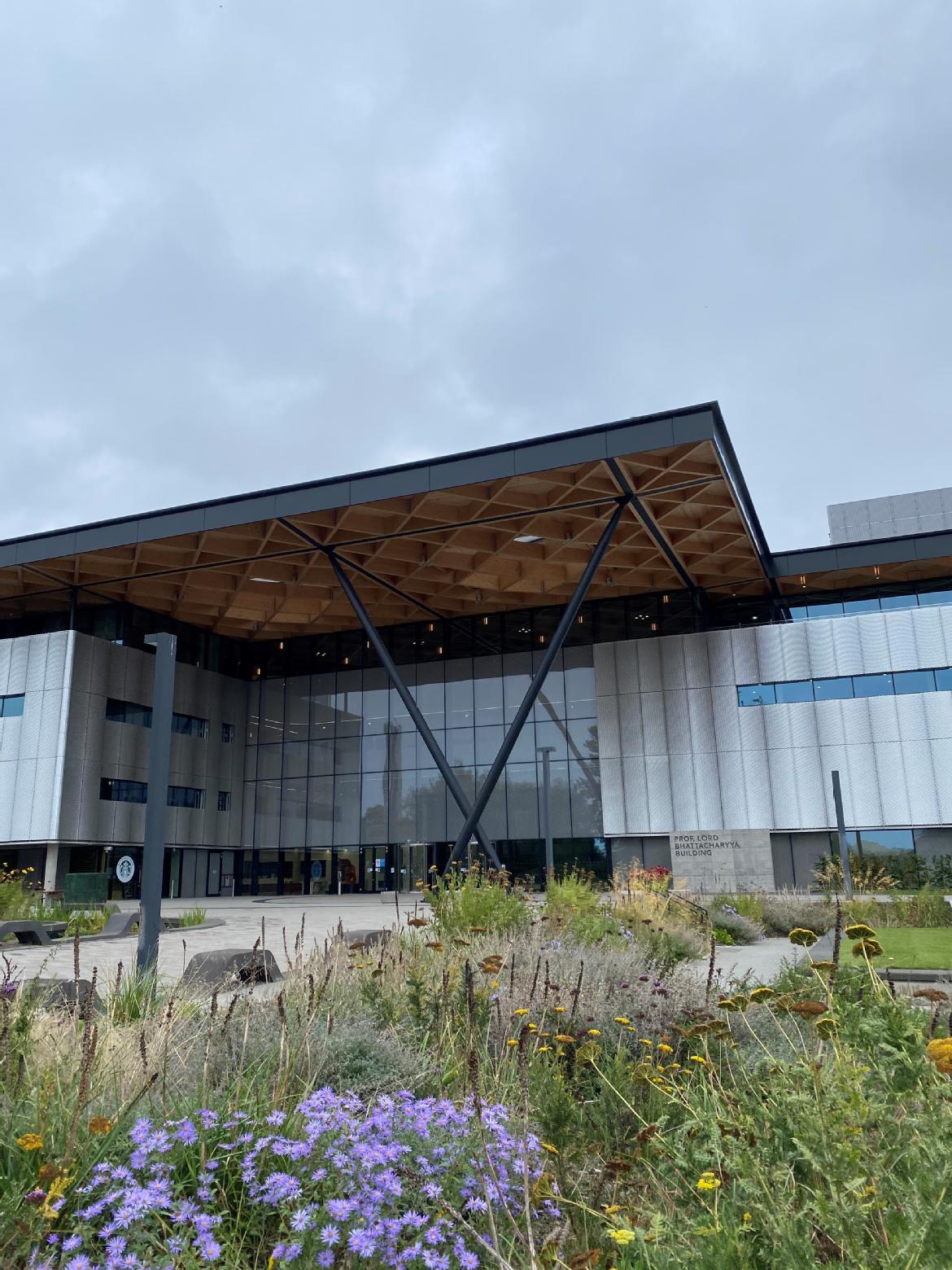
Don’t Panic! Deciding Where to Stay Is Like a Piece of Cake! 😉 (3)
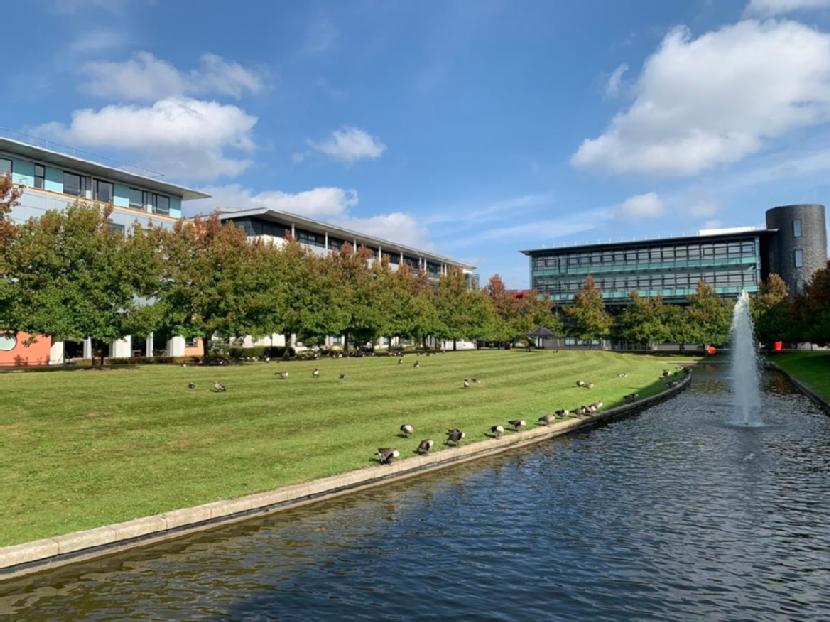
Deciding on booking which accommodation could be struggling. The tips below may help you figure out which accommodation is ideal for you.
Tip 1: List out all your expectations towards the accommodation
Sit down and list out your accommodation requests can always clear your mind when you are struggling to choose accommodation and room type. Some people may think living near the campus is very important as they want to have the quickest access to the university facilities like the school library, while some people may think the convenience of getting groceries and leisure activities are more important. Therefore, you should ask yourself about which factor is your most concern, then you will have a clear direction to know which location you should live in.
For choosing the room type, you should ask yourself if you prefer living alone or a group of people, and of course, your budget. If you prefer living alone and the price is within your budget, a studio would be your thing and vice versa. Even you prefer to live with a group of people, you should always get yourself prepared for the issues that may happen in the flat, such as the cleanness in the common area, different living habits and possible conflicts among flatmates. People problems can always be resolved via proper communications, and your patience is always the key to getting issues resolved and having a happy stay during your study.
Tip 2: Check the information from Warwick Accommodation and join the related official communities in your home countries
Checking the Warwick Accommodation website can always give you an idea about your stay at Warwick. The information provided is clear and it is believed that you can get yourself familiar with the school accommodations and brief ideas about the areas nearby.
If there are any official Warwick student communities/ activities organised in your home countries, you can join and see as some graduates may share their study experience in the communities, and you can make friends during the events. It should be very beneficial for your preparation before you arrived at the university.
Tip 3: Ask for previous experience
Should you have any Warwick alumni friends, do not hesitate to reach out to them and ask for their experience in the university! It is extremely helpful for your plan and preparation of your Warwick journey since they experienced the things that might happen during your study, and you can avoid the accommodation/ areas you don’t prefer and select the most suitable place for yourself during your study. Usually, the comments and feedback from the friends around you are genuine and trustworthy, and you can take their options into account when you decide to book a place to stay.
Hope my ideas and reviews are useful and clear the puzzles you may have 🤗 Wish every newcomer and current student enjoy their stay and study at Warwick.
Don’t Panic! Deciding Where to Stay Is Like a Piece of Cake! 😉 (2)
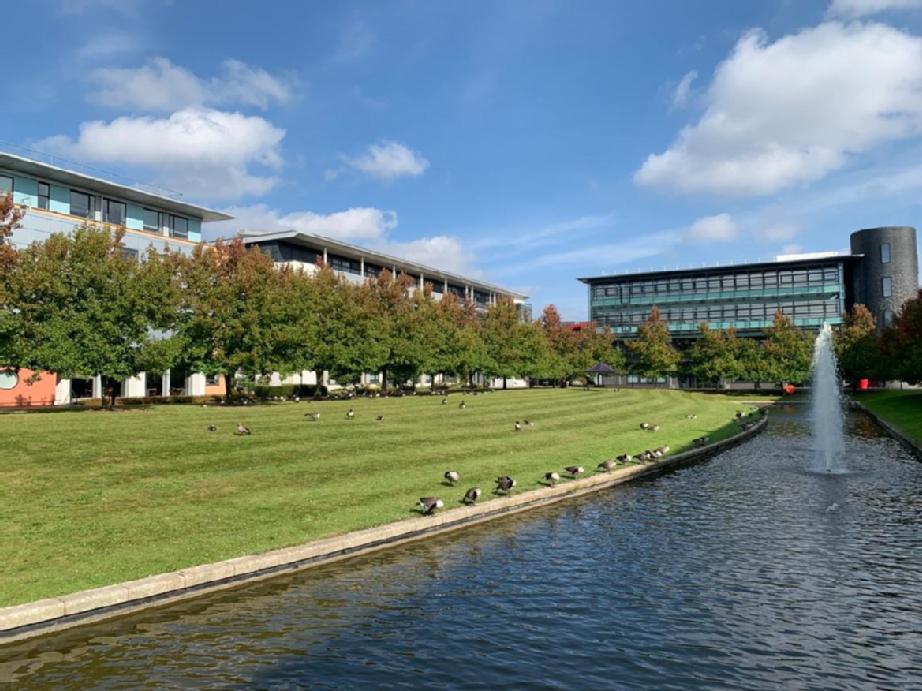
There are three main types of accommodations around the university - University student halls, Private student accommodations and Shared houses. In this blog, I shall discuss the differences between the accommodations and their pros and cons one by one, according to my own experience and those I heard from my friends. Enjoy! 🥳
Warwick Accommodations (On Campus)
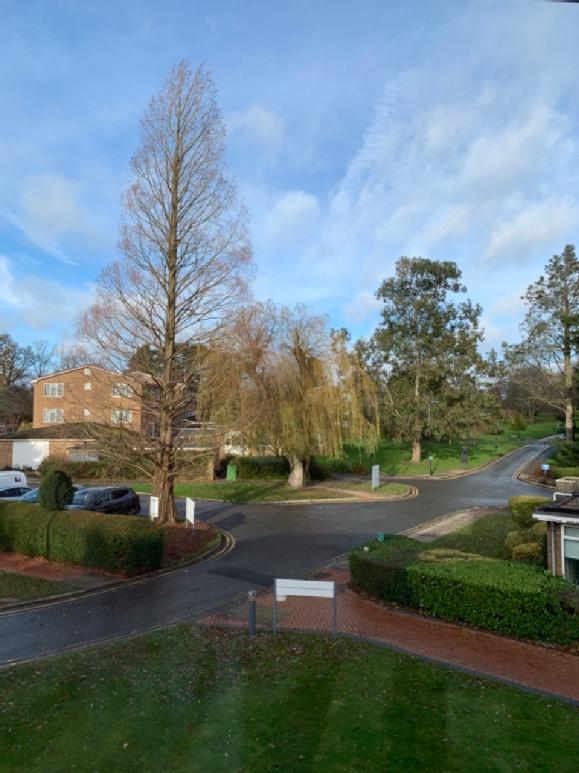
Applying for student halls at the university is always the simplest and easiest. If you are impatient to research and read reviews, and safety is your priority in choosing accommodation, living on campus would be the best choice for you.
To apply for a student hall, you just need to follow the instructions stated in the university emails, and you will likely be allocated a room on campus if you are an international student. You of course can prioritise your preferable choices of the student halls during the application, but it is not a guarantee that you can always get your favourites. Most of the student halls are shared flats, and it would be a shortcut for you to adapt to your life in the UK as you will be meeting people around the world and across different majors in your flat. If you prefer to live in a studio and on campus, Cryfield Studio could be your option. Living on campus is worry-free since the application process is simple and all bills (except laundry) are included in the accommodation fee.
However, the application for university accommodation usually opens in June or July, and the move-in day is always one week before the term starts, it may be a little bit late for those who would like to plan and settle down in the UK earlier.
Private Student Accommodations (Off-Campus)
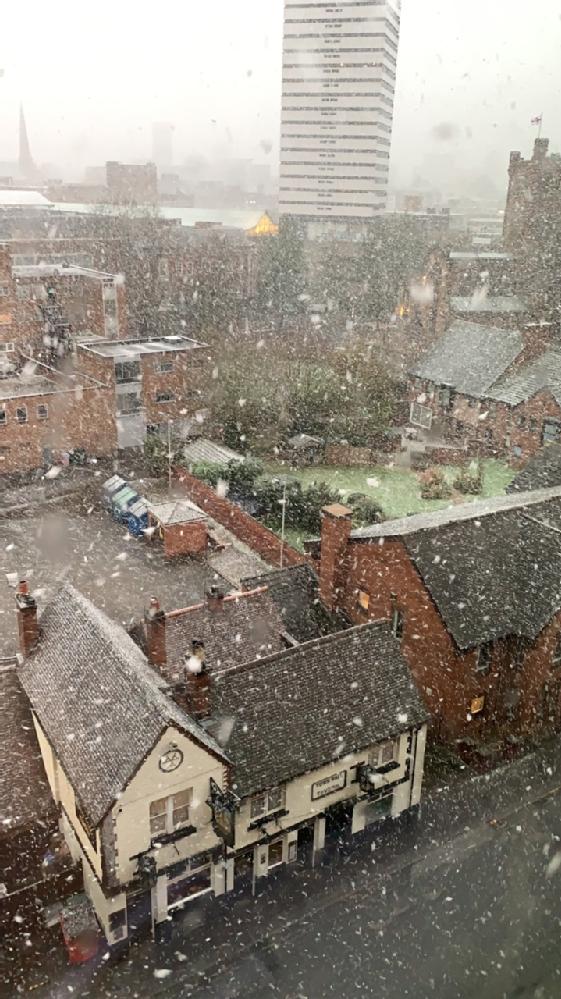
There are loads of student accommodations across Coventry and they are usually operated by scaled property companies. Except living on campus, living in a private student hall is also a very popular option among students (I am also one of the residents😄).
Various room types and prices of private student accommodations are available, so you can choose your room size and type according to your preference and budget. Like the student halls on campus, many of the private student accommodations provide student flats, so you can also meet various people across different majors, even different universities. If you have friends coming to study together, some of them even allow you to do a group booking and reserve the rooms in the same flat. Should you prefer living in a studio, the choices in private student accommodation are more than the university offers. All bills except laundry are also included in your rent, and the facilities of some of the accommodations are fancy (but of course, the price reflects how premium your accommodation is 😂 Some of them can be very expensive).
If you are a person who would like to get things confirmed and settled earlier, private student accommodations may be your option. However, the drawback is that the halls are usually very far from the university, and you will need to take public transport to school. Even though some of the room prices may be slightly cheaper than the university ones, the transportation fee and time cost more.
Shared Houses (Off-Campus)
Compared to the university and the private student halls, shared houses aren’t the mainstream among students, but they still have their market. Living in a shared house is a very good opportunity to experience local life as the houses are usually in the residential area where the UK citizens are living. If you are planning to stay in the UK after your study, renting a shared house could be a rehearsal for your future accommodation hunt since you shall know what kind of houses you should look for throughout your study year, and already got familiar with the process and procedures of renting a house.
Renting a shared house is not as simple as student halls. A lot of comparisons between houses and locations are needed to be done, and the renting process such as paying a deposit and signing a contract could be complex. Some landlords are offering a packaged rent including all bills but some of them don’t. If the utility expenses are excluded from your rent, you may also need to handle the applications and liaise with the suppliers by yourself. All in all, loads of stuff you may need to deal with when you rent a house and I think if you are coming alone and do not have friends and family in the UK, renting a shared flat could be overwhelming because you are also getting familiar with the new environment in the UK. However, for those who already got experience in renting a house in your home country, or you are coming to the UK with your friends, renting a shared house is highly recommended.
After reading the two blogs, I hope you will be more familiar with the surrounding of Warwick. Tips about finding your ideal accommodation in the next blog. Let’s go! 🏃 🏃 🏃
Don’t Panic! Deciding Where to Stay Is Like a Piece of Cake! 😉 (1)
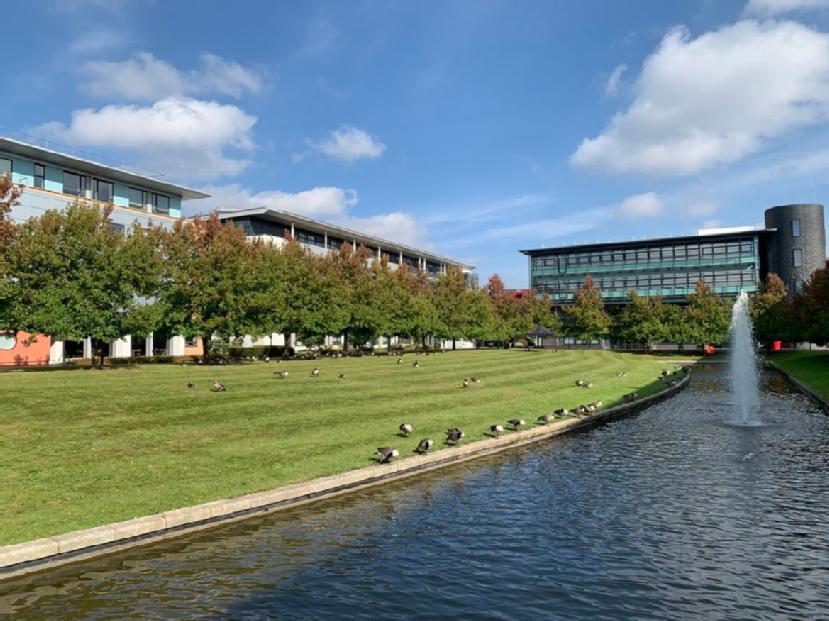
After accepting your MSc offer, you may start to be overwhelmed by a series of overseas study preparations. Information like the visa application process is always straightforward and easily be obtained, you seldom go wrong if you follow step by step. However, accommodation research is another story. The information may not be very organised, and it is hard for you to decide where you should stay before arrival as you may be unfamiliar with the city. Living in your preferable place can make your life at Warwick more enjoyable and incredible, if you are interested in knowing more about the stay at Warwick and how to select your ideal accommodation, let’s continue to read my following blogs! 👇🏻 😜
Location – Should I live on the campus or nearby? Or Coventry and Leamington Spa is better?
On/ Nearby the Campus
Half of my friends and classmates live on campus, while another half of them live off-campus. Those who live off-campus, are still living in the areas near the university like Canon Park, Charter Avenue, and Canley. The advantages of living on or nearby campus are you can always go to the school by walk, and it is time and cost-saving for classes, also, living inside the campus is usually safe. Tesco Superstore, Aldi, Asian supermarkets, and Boots are all available in the Canon Park shopping centre, and thus, it will not be a puzzle for you to get your daily essentials.
However, some of the accommodations are a bit far from the shopping centre or your department buildings, and you may need to walk for quite a while for your groceries and/or to school (indeed you can ride a bike or scooter to shorten your journey!). Choices of restaurants nearby and at Warwick are limited but you can still get the basics in the cafes or restaurants and Rootes grocery store on campus. In my opinion, living on or nearby the campus should be suitable for those who prefer to have quick access to the university facilities and a shorter journey time to school.
Coventry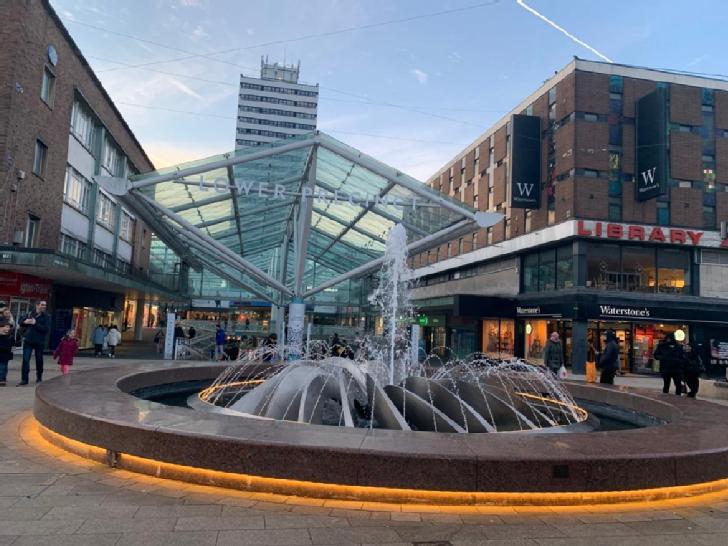
Even though living on campus or nearby is a popular option among my classmates, some students like me have chosen to live in Coventry. Most of us are living in the city centre and Earlsdon. Living in the city centre is always convenient, and you can go to various places such as supermarkets and the shopping mall by a walk with just 5-15 minutes, and lots of restaurants are around you. The Coventry rail station is also very close to the city centre, and it is always quick to catch a train if you are going somewhere else in the UK. Earlsdon is a residential area near the city centre, and a high street is across the area for all your daily needs.
Yet, the cons of living in Coventry is the journey to school – Usually, you will need to take buses to Warwick and the bus journey is around 25-35 minutes. The transportation fee is around 2.5 GBP per journey, which is a bit pricy for students. However, you can get a student bus pass to save your cost. Sometimes you may be panic about the bus schedule, as the buses are not always arriving on time (earlier or later) 🙁 and my suggestion is to arrive at the bus stop a bit earlier if you have a face-to-face class at the university. If you admire convenience and vivid life, living in Coventry (especially the city centre) would be a great choice for you.
Leamington Spa
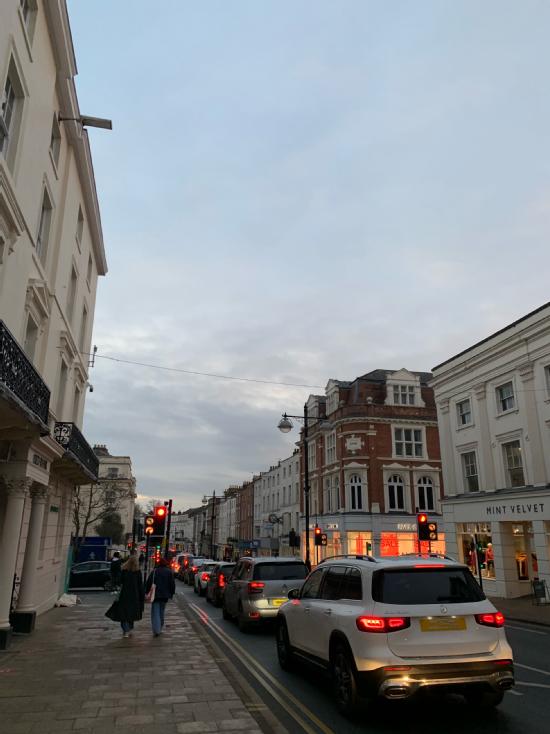
Some of the students aren’t living in both campus and Coventry but Leamington Spa. Even though I do not have friends living there, I visited there leisurely - The bus journey from the Warwick campus to Leamington Spa is around 30 minutes. It is a small town with many nice restaurants and a great park. Indeed, you can also find your daily needs on its high street. If you always fancy great restaurants, Leamington Spa could be a great location for you.
After having a general idea about the surrounding of the university, you may want to know more about the types of accommodations and start thinking about which would be the most suitable for you. Let’s check my second blog out and it may help you clear your mind! 🤓
My everyday life – module-free time
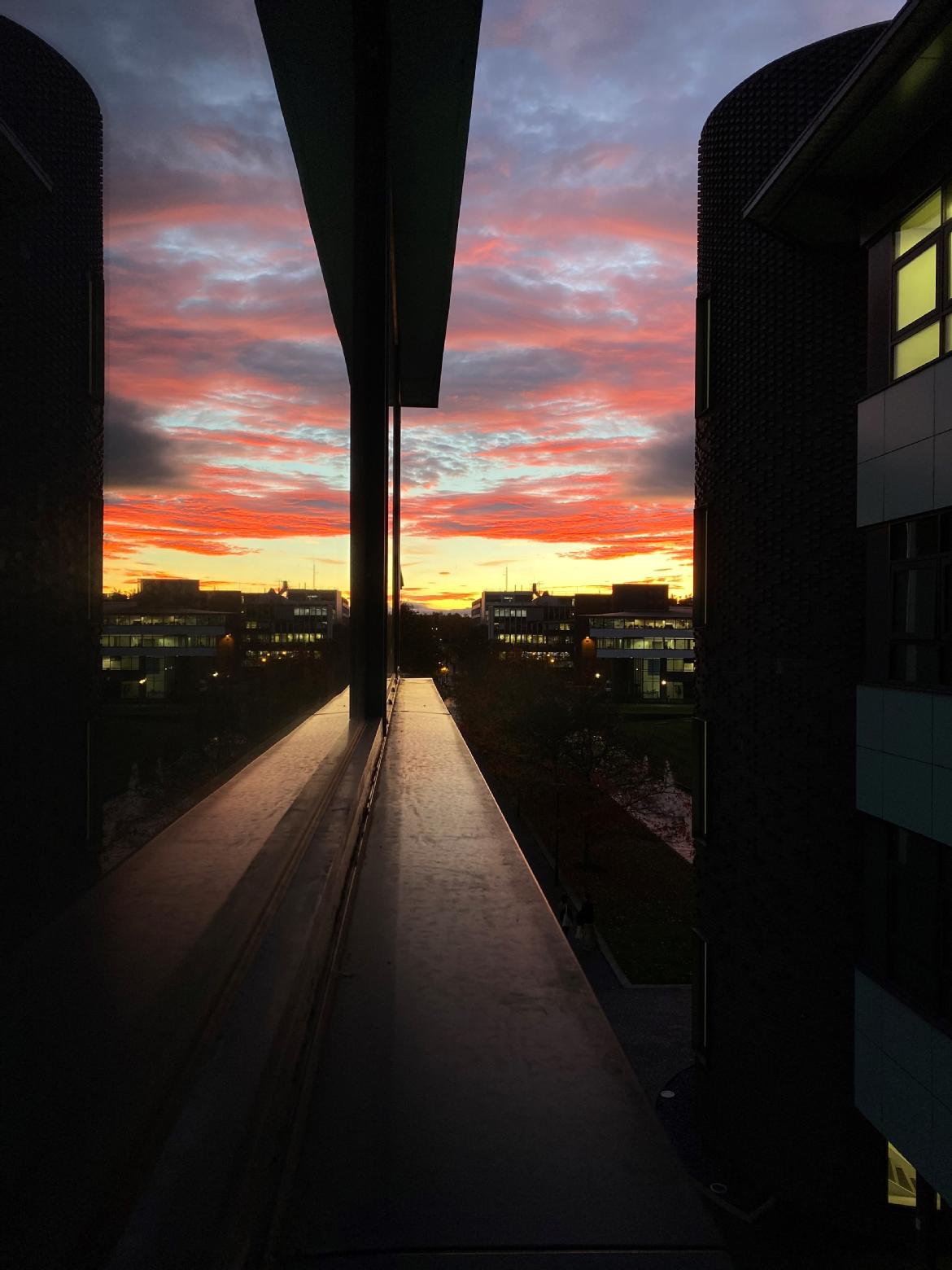
Hi there,
you might have heard already, my Master's programme is structured in such a way that we have the modules in blocks. So, we have a module for 1-2 weeks at a time (depending on the module) and then usually a few weeks off in which we can deal with post-module assignments (PMAs) and the Master's project. Whether and how much time we have between two modules is not fixed and also depends, for example, on which elective modules we have chosen. In order to give you a small insight into a possible daily routine of an ITM student, I would like to introduce you to my average weekday during the module-free time.
7:00-9:00 am: I usually get up between 7-8 am, eat breakfast in peace and get ready. After that, I pack my back and make my way to campus.
9:00 am - 12:30 pm: working on whatever is on, either PMAs or my Master’s project. Personally, I prefer to work on campus, for example at the postgraduate hub or one of the WMG buildings. But there are many other possible places to study, e.g. at the library.
12:30-01:00pm: lunchtime. There are microwaves all over campus where you can heat up your food, or you can get food from one of the many food places on campus.
01:00-4:30 pm: work again
After 4:30 pm: Now is the time to meet friends, go to the gym, prepare my lunch for the next day or just chill.
Of course, every day looks different, and I wish I were so structured that every weekday actually looked like this for me, but this is just a general structure that I try to follow. In between, naturally, short breaks have to be built into the work phases every now and then. The nice thing about the module-free time is that we are very flexible. We can also spend a weekday not working (or not working as much) if we have something else planned, and can adjust our schedule accordingly.
I hope this blog entry helps you to get an idea about the daily life of an ITM student in 2021/22.
Henrike
MSc International Technology Management
My Job Success Story: Can be your success story too! (Part Four)
As promised in my previous blog post (My Job Success Story: Can be your success story too! (Part Three)Link opens in a new window), here is the continuation of the success story to secure my job.
At the end of the interview, the interviewer would open the floor to ask questions. GRAB THIS OPPORTUNITY! You are marked the most on these questions. These last 10-15 minutes helps the interviewer to understand how eager and excited you are to know about their company.
I cannot stress enough to stay in touch with your recruiter (the person who contacted you on day one). (S)He is your best friend throughout this recruitment journey. (S)He will advise and guide you and try everything possible to help you get the job if you are the right fit for the role. Always keep them posted via email or telephone after your interview and any change in circumstances.
Finally, in November 2021, the day arrived when I received my first offer. Please do not get excited and listen to all the salary benefits carefully on the call. Always maintain written agreement. Eventually, the recruiter will proceed ahead with your official contract. Please do not stop attending interviews until you sign the official contract. In case, you have received multiple offers, try and negotiate with the second and third companies. My advice is: Do not burn bridges with your first company with whom you have signed the official first contract. But again, it is not set in stone you can follow what suits you the best.
To summarise, this is my success story. I hope you can pick up and learn a few things and make it your success story too!!!
My Job Success Story: Can be your success story too! (Part Three)
As promised in my previous blog post (My Job Success Story: Can be your success story too! (Part Two)Link opens in a new window), here is the continuation of the success story to secure my job.
I will be generous and share my secret to prepare for these interviews.
Recruiter-round interview –
- Ensure you prepare your life journey in a story-telling format with positive impacts on the Clients and their business
- Begin your strengths by saying - "My previous Manager Mr Thomas Sheckle mentioned in my feedback that I hone ABC quality...". As this helps the interviewer that not only you think this is your strength but also your supervisor or higher management echo it
- Please prepare for at least three weaknesses and do not answer saying there is no weakness I can recollect, or I am Pitch Perfect!
- Read and understand the job description carefully. Express how your work experience can cause a positive impact on the company and its associated clients.
- Read the latest annual report of the company. Capture two-three company's facts/elements that are not readily available on the internet website. The interviewers appreciated that I did my homework about the company.
- Always read and understand the company's value and be prepared to justify your favourite one.
Technical interview –
- I used to search my interviewers on LinkedIn and try and find some common aspects to talk about during the first 5 minutes of the interview. It will help you in breaking the ice!
- The only tip is to be well versed with your CV and remember your top five to six skillsets with some stories to share.
Competency interview –
- I had framed twenty-five stories based on my work and educational experience in a STAR format. Yes, you have read the number correctly!
- Later, I hashtagged each of the stories. For instance, #Conflict or #ProudMoment. It was easy to remember and acted as a catalyst in correlating with the question.
- After each interview, you note down which story you have used and cross over to that story for the next round of interviews in the same company. Please ensure you do not repeat the stories in the following interview rounds.
Please read my next blog (My Job Success Story: Can be your success story too! (Part Four)Link opens in a new window) to weave in your success story from my learnings and experience.
My Job Success Story: Can be your success story too! (Part Two)
As promised in my previous blog post (My Job Success Story: Can be your success story too! (Part One)Link opens in a new window), here is the continuation of the success story to secure my job.
To kick start the job search, I started shortlisting the list of companies. In essence, the companies should get finalised by the end of April 2021. Fortunately, my CV was ready and up-to-date with all my recent achievements. So, I started applying left, right and centre to numerous shortlisted companies. For five consecutive days, I diligently applied for jobs with minimal breaks. As I knew, I was running far behind in the process. My advice is: please do not compare yourself with others if you are ahead or lagging in the job-securing process.
After applying to thirty different companies, the waiting game was on where my patience got tested. The trick is - One does not sit ideal as the other two activities are still pending. Firstly, applying to other companies as per the suggestion from renowned portals like LinkedIn, job search, indeed, and many others. Secondly, the significant and game-changing step in the process is to prepare yourself for the interview.
You need to prepare yourself for three different types of interview questions: recruiter-round, technical and competency interview. I have listed commonly asked questions based on my personal experience.
Recruiter-round interview –
- Why XYZ Company?
- Tell me about your strengths and weakness?
- What is your motivation?
- What are you looking for?
- Why are you the best fit for this role?
Technical interview –
- There are no set questions for this round as the interviewer goes through your CV and asks questions related to your work experience.
Competency interview –
- Tell us about your achievement that you are proud of?
- Tell us about a time you got into a conflict and how did you resolve it?
- Tell us about a time when you overcame an obstruction?
- Have you ever handled a difficult client? If yes, then how did you handle the situation (Please do not answer that you have not experienced this as we all have had some experience)
- What is your perspective about leadership and what sort of leader are you?
- How do you announce bad news to your fellow team members?
- Tell us a time when the Client team did not agree with your idea, and you still went overboard and convinced the Client team?
Please read my next blog (My Job Success Story: Can be your success story too! (Part Three)Link opens in a new window) to weave in your success story from my learnings and experience.
My Job Success Story: Can be your success story too! (Part One)
The day I entered the University, students, staff and professors started talking about securing a job. To my dismay, I did not sign up for a job opportunity before even I secure my master’s degree. Back home (India), the job placement process is different to what we have in place in the UK. In the UK, one needs to hunt and hone a job opportunity on their own without any assistance from the University or placement officer. But the University of Warwick does aid the students in their careers and jobs in terms of - creating a CV, cover letter, preparing for interviews and psychometric assessment, and many other careers advice.
During my first week, I got back home with a big question in my mind – Do I apply for a graduate scheme or experienced hire? For those who do not know my background, before doing my master’s degree I had nine years of work (IT) experience with Accenture. I received the advice to pursue a graduate scheme job (keep it in my back pocket), and the coming months go for experienced hire. On further discussion with my network and attending cyber security career fairs, mid-December 2020, I decided to follow the path of experience hire. My career decision may not stand true for everyone as each individual have different career growth.
Fast-forwarding to May 2021. According to the plan on paper, I should have started my job-hunting process by applying to multiple organisations. Due to the aftermath of the Covid-19 pandemic, I failed to adhere to the plan. Hence, I decided to push it further to July 2021. Again, my job application slipped as I was lagging in my project work. At last, I progressed with my job applications at the end of September 2021, once I submitted my project. Please do not delay your job application and repeat the same mistake as I did. Try and stick to your timelines and deadlines.
Please read my next blog (My Job Success Story: Can be your success story too! (Part Two)Link opens in a new window) to weave in your success story from my learnings and experience.
Be the best version of you
What a better moment to be whoever you want? To start again, to do things that you have never done.
What a better place than in the university? A place where no one knows you, a place where there are so many cultures, so many different people.
What a better atmosphere to be you best version? To be more sociable and make lots of friends and contacts. To exercise yourself in the gym or university green spaces. To start eating well now that you have to cook for yourself.
Sometimes, we are expecting signs or moments to change our lives but when we have the chance, we usually miss this opportunity to start over again, to make changes, just because is easier to keep in our routine, to continue being the same person we already are.
Even, we usually stay save just calling all the time friends and family in our home country instead of meeting new people. Or even you will find yourself looking for people like you, from your country or that speaks your same language. Go out of your comfort zone, meet people from other countries, with other believes, with different English accents!
You took already the hardest step of leaving home, quitting your job, starting your life in another country, to star studying again. You don’t need to do have a lifechanging experience but do the most with it, enjoy this time of your life, as people say, today you are the youngest you will ever be again.
What if today you try to not be shy? What if today you try to be more productive? Go to that awareness event! Wake up early! Go to those crafting session! Just go, don’t think that much if it is for you or not, just go and learn about new ideas, people, projects.
Juanita Pachon
MSc in Supply Chain and Logistics Management
My Winter Break: Three tips for Solo Traveling
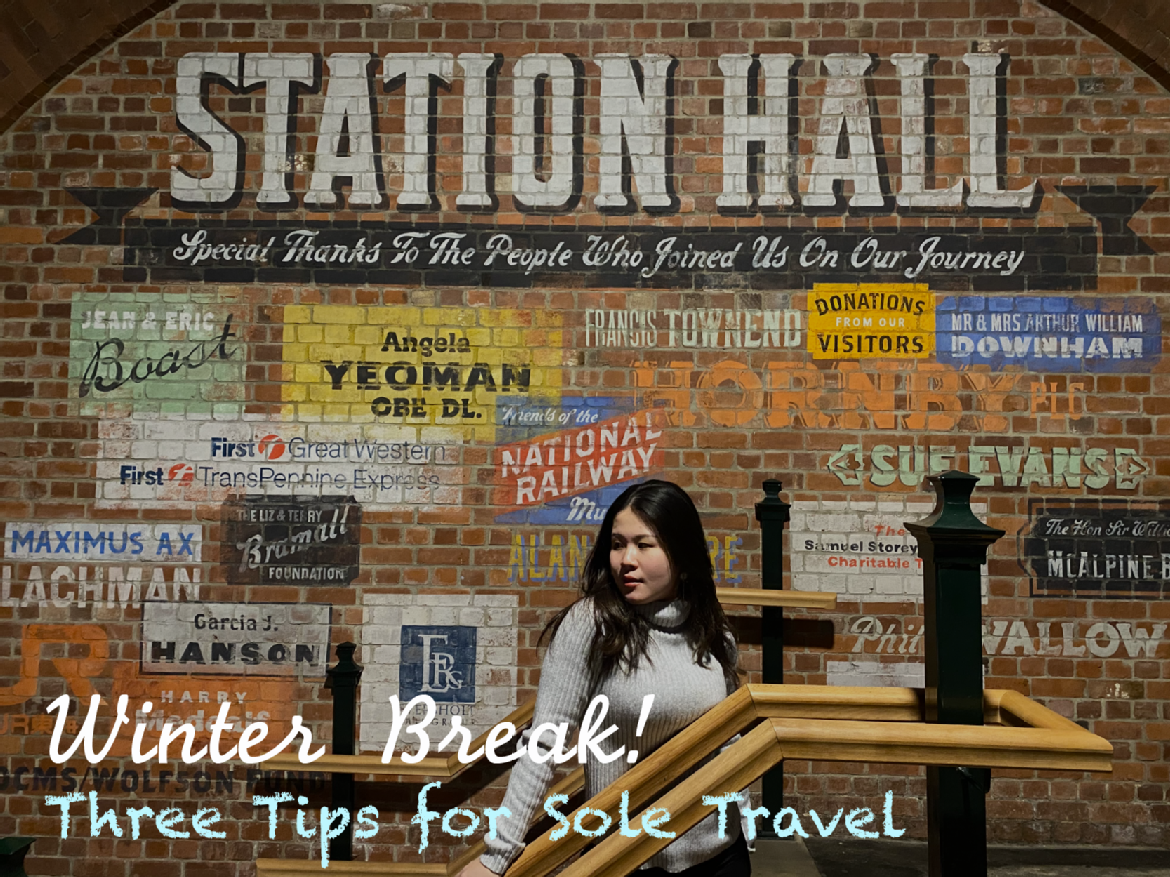
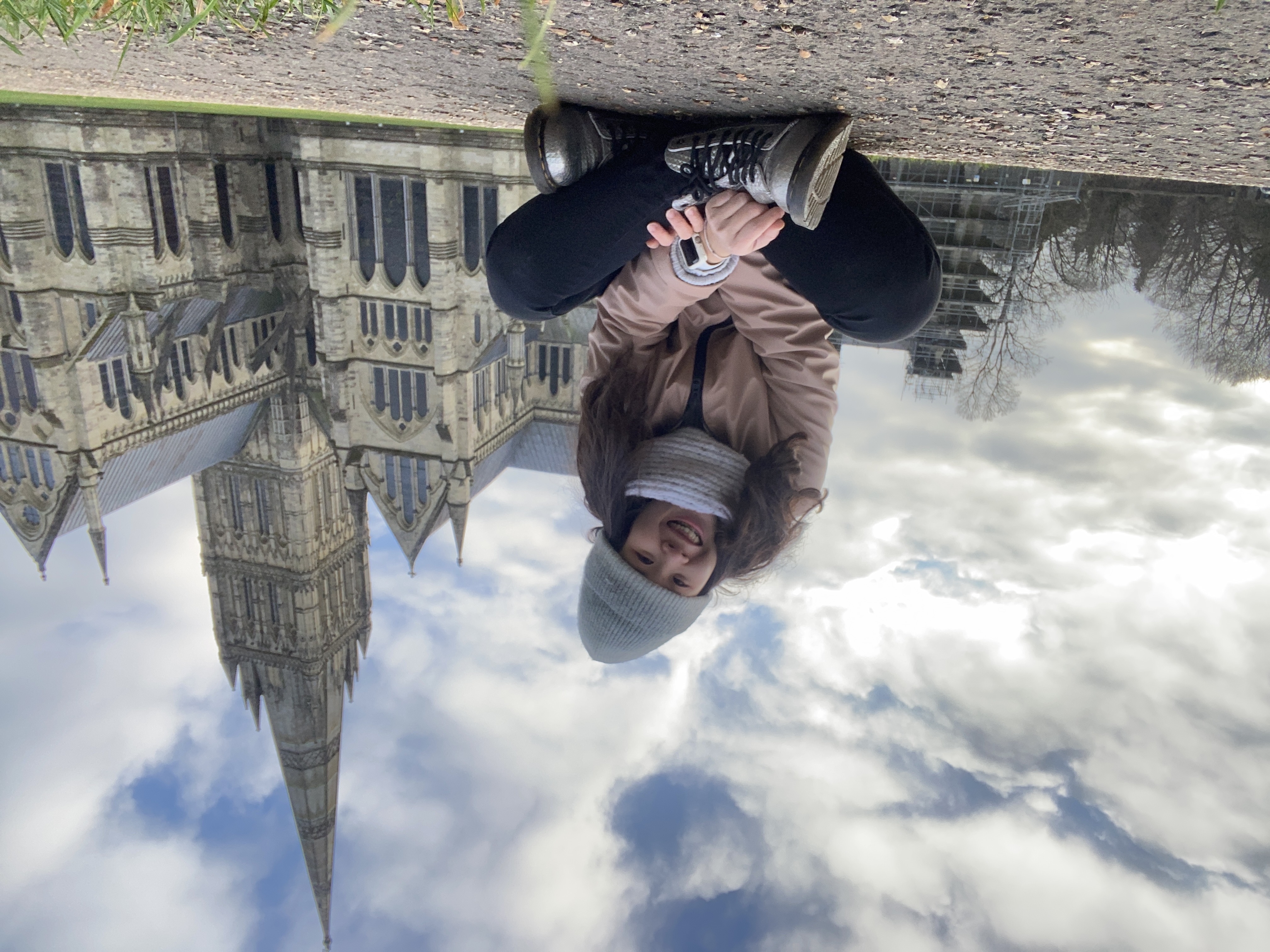
Celebrate everything
Holidays and special dates recently passed, and I just have one TOP TIP for you. Celebrate everything you can. Being far from home can be really difficult, you might miss your family, your home country Christmas food, your traditions and sharing with people. Nevertheless, even if you are by yourself, if you cannot celebrate as usual, just try to do it, and enjoy these dates as you would do every year. Each moment is unique, is valuable and won´t comeback, so don’t forget to live it to the limit.
So, as I was saying, get involve in every event you can even if you are unfamiliar with those holidays. For example, there is the Diwali, Lunar New Year, Thanksgiving Day, Reyes, and a lot more holidays that you can enjoy with all your international friends and flatmates. Additionally, the university has nice events along the year to meet new people from different cultures and to get that “holiday feeling”.
I am not from the Unites States, however a feel thanksgiving is a lovely concept and sharing some amazing food just is the perfect plan to me. Then with my closest flatmate we prepared a complete dinner for the flat and we shared that special date together, getting close with each other. In the same week, I invited one of my local friends to enjoy the thanksgiving dinner offered by the university, and I will tell you that we were pleasantly surprised with the amazing time and food we had.
Finally, don’t forget that you are in England so try to immerse yourself in the culture. And what a better moment than in December, when all these festive food and decorations are trendy. Adapt your Christmas dinner with some Yorkshires, Christmas crackers, and mince pies. Please enjoy this time of your life, it will never be the same.
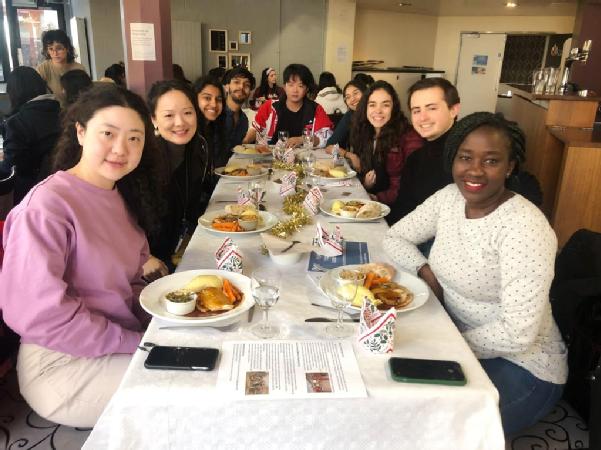
Thanksgiving lunch with The Student Internationalisation Team
Juanita Pachon
MSc in Supply Chain and Logistics Management
Winter is coming
Hot chocolate, snowy days, movies, and cosy blankets can be the image we all have about winter before living it. And yes, it can be like that, however, no one tells us about short days. Yes, no one tells us that we should be prepared to want to eat all we have in the fridge at 4pm or that you will want to go to bed at 5pm.
Why am I making so much emphasis in this? I come from a tropical country, the sunrise and the sunset are at the same hour every single day. While, here in winter the sunrise can be at 8 am and the sunset at 4pm. That is a really short day for people coming from the tropic and too little sun to absorb, especially on those cloudy days. That is why my first tip is as soon as winter starts go and buy some vitamin D and take it each morning, this will boost your mood and good health.
At the beginning of this dark days it is difficult to understand what is happening with your mood, your body, and your productivity. With time I started talking about it with my friends and understood that we all are going through the same process and that even local people get SAD (Seasonal affective disorder). Go and goggle it, it is not that bad at it sounds. So don’t worry if you feel a little bit down, just try to apply my second tip: talk about how you are feeling with someone, do activities that you love and fulfil you with positive energy. And if you feel you need it, university offers a lot of support and nice activities, for example pet therapy.
Nevertheless, winter is very beautiful, enjoy it as much as you can. It will snow and it is the most magical thing you can imagine. Don’t hesitate to go and play, build a snowman, and make some snow angels. My third and last tip is to invest in a good winter jacket. It is not worthy not going out just because you are not well equipped, and you are afraid of cold outside.
Bonus tip: Try to do any activity you can imagine at 4pm, just try to not be in your room at that time of the day so you won’t feel that badly with the early sunset.
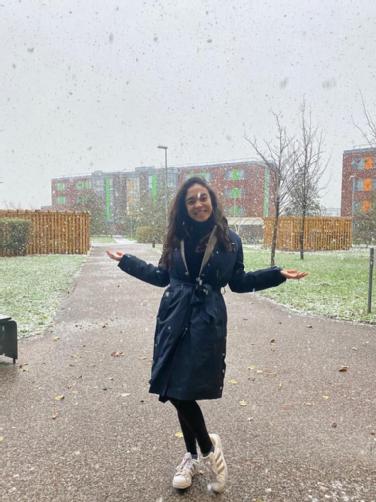
Juanita Pachon
MSc in Supply Chain and Logistics Management
It’s beginning to look a lot like Christmas...
It’s beginning to look a lot like Christmas... is all you are going to hear since the end of November. So why not to enjoy this festive atmosphere and visit some Christmas markets?
Christmas markets are traditional all-around Europe, they vary on food, products, attractions but the concept is the same. However, if you are going to travel outside UK my first tip is to check on Internet the most beautiful Christmas markets in Europe and try to visit them. As far as I know France and Germany have a lot of them and they are really well ranked.
Nevertheless, for students like us, postgraduates, holidays are not very long, so you can try a weekend getaway and visit by train cities nearby.
In Birmingham, you can find different Christmas markets, but Frankfurt Christmas Market is the best known in there. Most of it is full of food stands or to be more precise, German sausages and nice bars.
So, here comes my second tip, the mulled wine in winter is a must in UK, and the best one I tried was there. It was a little bit expensive because you can keep as a present a very nice cup, however, you can return it and they refund you some cash. This market will be one of the nearest to Coventry and if you don’t like them, this city has a huge shopping centre where you can look for some Christmas presents.
If you are planning to go to London, then Winter Wonderland is the reference market on England and as you are living here you must go. This year, the entrance was priced because of COVID, however, I think my third tip can be applied to any activity any year, go early December, the entrance will be cheaper and there will be less people. Of course, try to see it when it goes dark because it gets magical and just enjoy it! Get in all the attractions you want and eat some churros.
On the other hand, if you are looking for food in a Christmas Market people recommend Christmas by the River, it’s a Christmas market you will find next to Tower Bridge and the vast majority is food stands with international dishes.
You will find lots of different markets all across the city so you can explore more of them, but if your time is short don’t forget to see the Christmas lights, usually in Carnaby, Oxford and Regent street.
Juanita Pachon
MSc in Supply Chain and Logistics Management
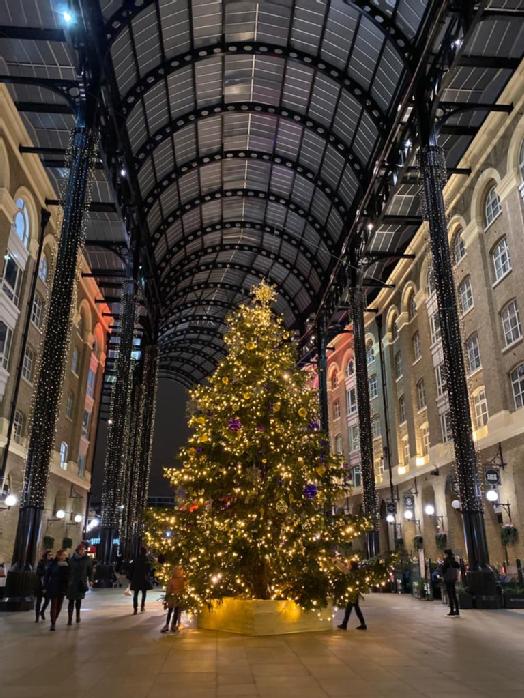
Christmas by the River Market
How to set up New Year goals
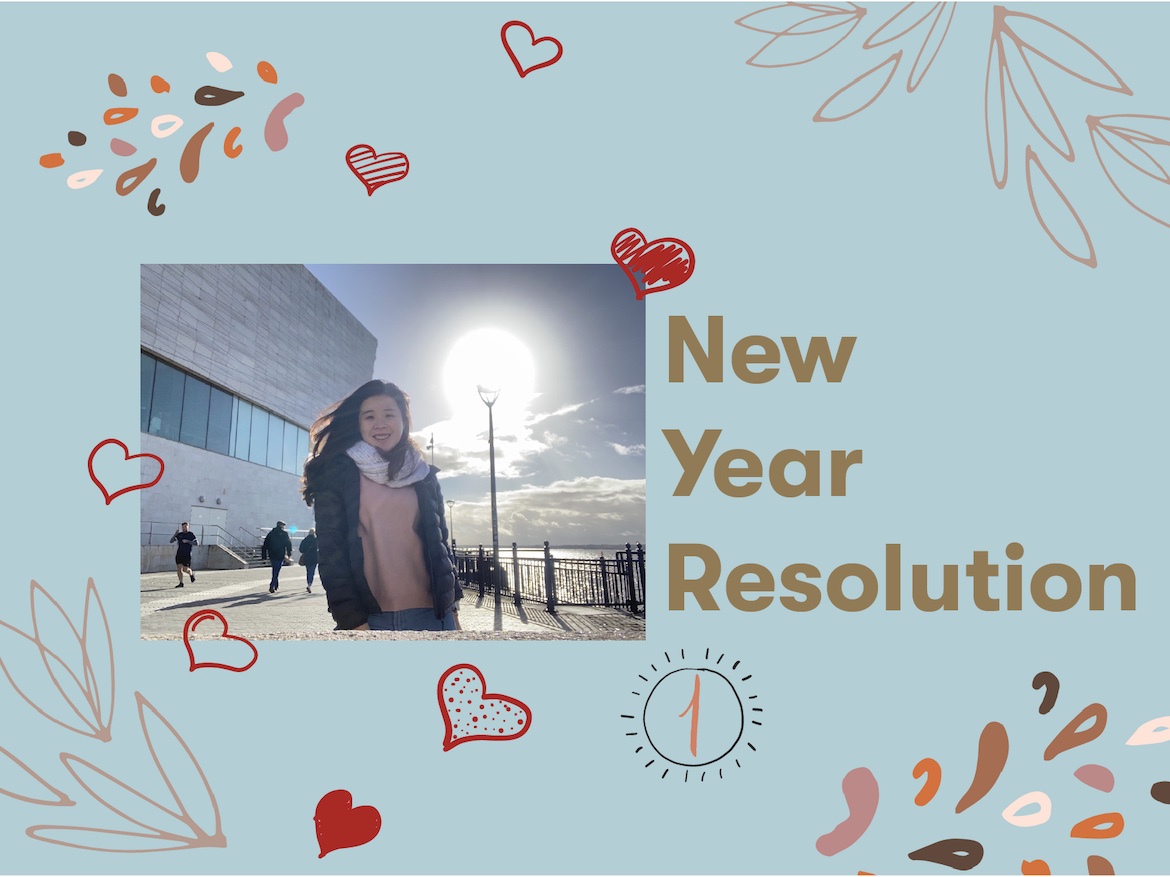
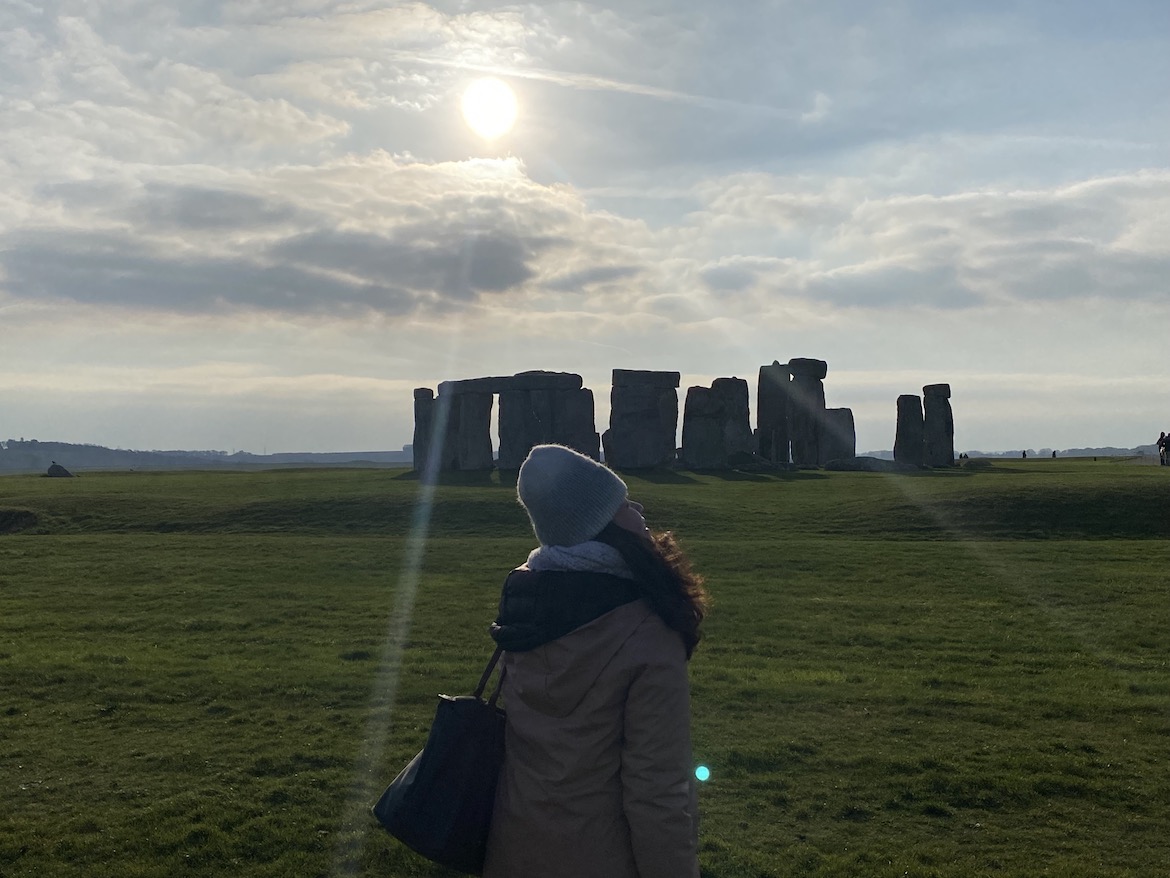
Time zones, time issues
As you arrive you will have lot of time to get use to your new life, organize your new spaces, discover the place, how the university will work and more. As my first tip to this is try to arrive as early as possible. Not just to because you will be able to take the best drawer in the kitchen but because you will be able to socialize with more persons that like you do not know nobody yet. Your residence, campus, coffee shops are great places to meet new people, don’t be shy. Anytime or anyplace is a good moment to make friends. Additionally, you will be able to explore the place, to make groceries and more before getting involve in the welcome week activities. And I will not categorise this as a tip because is a must. Try to book and participate in all the welcome week events. You will meet new persons; you will have fun and they will make you feel part of the university and the experience.
Regardless, there is lots of things to do, you will want to talk with your family. The first days it will be easy, everyone is expectant to know how everything is. However, with time everyone must come back to the routine and their times to talk will not match with yours because of the time zones. Hence, my second tip is even if you don’t want to make it feels like a task/obligation, try to schedule meeting with your loved ones. Like this you will have booked a slot of time to share and not struggling with their meetings and your life in Warwick. Besides, don’t forget to do things you loved to do with them, watch films, cook together, take dinner, whatever it is it will make you feel near to each other despite the distance. Nowadays there are a lot of tools that make easier the contact with others around the world, use them and learn how to embrace them in your life. At the beginning it can be difficult to be aware of the phone all the time or spend time in a call, but you will make it better with time.
My third and last tip, don’t stop doing things here or missing sleep hours because of this time zone issues. You must remember your life is here in England and you must live and develop yourself here. When you less expect it, your time in Warwick will end and you don’t want to regret to not making the most.
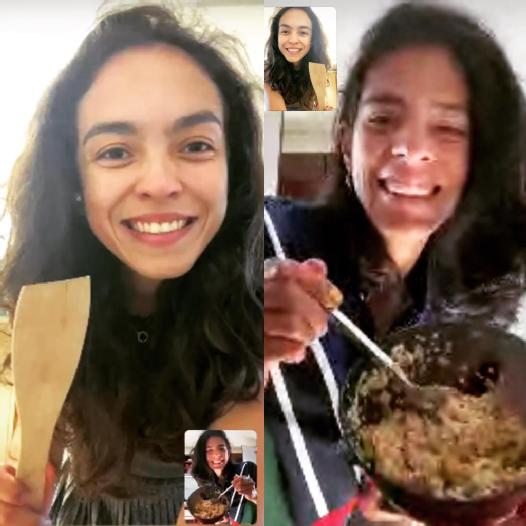
This is my mother and me cooking together granola.
Back home I used to bake it for her every Sunday.
Stay where you feel loved
Warning! This time there is just one tip but is one TOP TIP. As international student anywhere in the world you will live some experiences that you may know by now. Home sickness, cultural shock, fear of missing out also known as FOMO are just some of them. Universities usually have some support for us regarding those aspects, however, it goes beyond this.
Let’s forget for a moment all those real but cliché reasons to come to Warwick and let’s explore other valuable aspects you should consider before choosing where to study. Yes, good reputation, the availability on the program you want, country, language are some basics, but have you ever asked yourself how easily will be to get adapted? If there is someone that will be available to answer all your questions, help you and guide you?
In my opinion after applying to diverse universities being in contact with them and going through all the process required, I feel the most important thing is to be in a university that understands your situation and supports you in the best possible way.
Around 40% of Warwick students are international and this is relevant as you are as important to the university as any other student. And there is nothing nicer than finding someone in the other side of the world answering your emails and solving all the issues you have not just because you are many miles away but because there is a pandemic that makes it difficult to travel, to take decisions about your masters and about your life.
Additionally, arriving your first week to classes, after few days feeling lost in this new place, sometimes asking yourself how you arrived there, and listening to teachers and staff reaffirming your place in the room is because the university sees the potential on you and earning it can be the most satisfactory feeling in the world. Some make sure when you look a university to go to the one where you are not just one student, but you are the student.
Warwick does not leave you alone anytime, there are a huge number of points of contact and support. Not just for your daily life but for your career, in special dates like Christmas and more, they are always trying to get close to you.
Be always in a place where you feel wanted and supported.
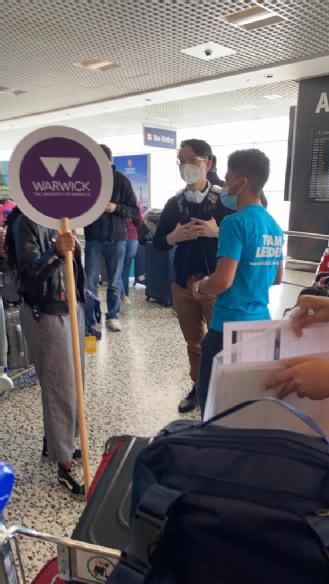
Home new home
Have you ever moved to a new flat? This new empty place with space for all your new things to make a home. Ups, “new things”? Yes, you will arrive to your residence after a very long trip and there is a nice kitchen, a nice room, toilet but nothing in them.
So, here comes my first top tip, buy in the airport or wherever you arrive something to eat. Your first day you will be so disoriented that you will not want to go outside to explore or look for some food. Of course, you can order online, there is Uber eats and other options for deliveries, however, it will take time to figure out how to enter your address, look for restaurants nearby and wait for the delivery. Tired and famished you will be grateful to have something to eat in your bag.
Second tip, keep every takeaway package, fork, or plastic glass, believe me it will be your tableware on your first days. You will realize that the first weeks the basic stuff for the kitchen or bedroom will be sold out. So, it is better to be prepared and having at list one plastic spoon and knife.
Third and last tip, at the begging of the term there is a second-hand market organized by the university. Go in the first day, you may find really nice and cheap plates, cutlery and pans. If you are late to it don’t worry, enjoy your walk to Tesco to look your new items for your new home, you will find cheap things.
*Bonus tip: bring your own body soap for your first shower. I was expecting my residence has one for me for my arrival and I had to go out without taking a nice shower after my long trip.

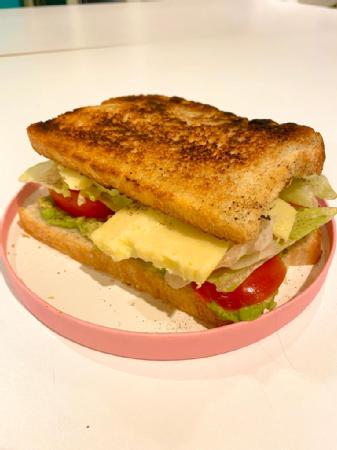
My first 50 Days at the University of Warwick

It’s indeed hard to comprehend that it’s barely been two months since my study at Warwick began as several events and activities have taken place. My experience here started with the fresher’s week. The university was vibrant and full of enthusiastic students, the piazza was packed with food stalls and student clubs, the SU had events planned every day and we had campus tours to explore this huge place. It was followed by induction week which was organised by WMG. This was a great kickstart to my course, MSc in Supply Chain and Logistics Management because it provided an overview of all the abundant opportunities we have in store. I signed up for all the career events where I received quality information from various experienced individuals and met numerous like-minded people.
From the succeeding week, I attended my course modules back-to-back. It sure is intense but it’s interesting to learn different topics and perspectives. It’s surprising and motivating to realise how far I can continually push to better my skills and intellect. Our modules run from 9-6 pm for one week and each module is structured differently according to the tutor. I like that differentiating factor as each tutor is skilled in the field of their interest and draws life and industrial experiences constantly during lectures. With such long hours, I am slowly developing the skills to concentrate efficiently, participate and communicate resourcefully in group activities.
Currently, in Coventry, it’s getting colder and darker by the day thus managing to reach at 9 am and to complete most of the work by noon is an effortful new experience. It does feel overwhelming to manage attending modules and career events, selecting projects and supervisors, starting assignments while also enjoying this time at Warwick but I believe this is a one-time experience worth experiencing. Although it’s hybrid learning, the classes are structured in a beneficial way to limit the number of students attending while providing the full classroom learning experience. The resources available are copious from libraries, study spaces, modern classrooms, student experience activities to events at university. Especially, this beautiful campus is such a treat to my eyes during tea breaks and walks as the nature and trees ease your mind and provide clarity.
Amidst all this exploration at university, I recently submitted my first post-module assignment and that’s my first accomplishment here. I believe counting little victories along the way will keep us motivated to stay on track. I have already learnt so much and can’t wait to look back at the end of next year and realise how far I have grown as a person.

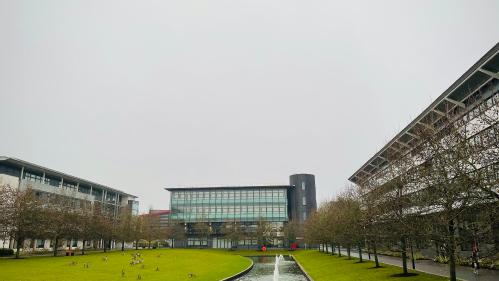
Janani Alagarsamy
MSc in Supply Chain and Logistics Management

Industrial Visit to Morgan Motors
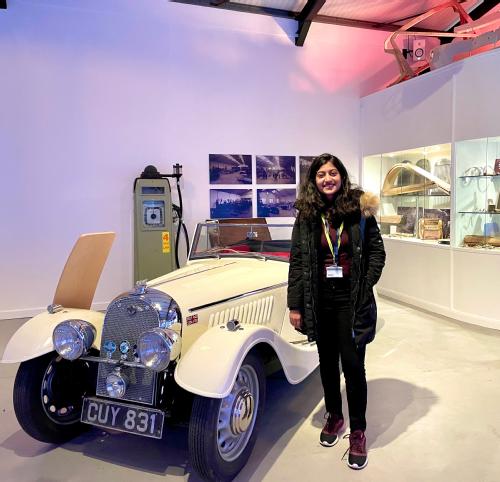
On the 11th of November, we hopped on the university bus to head to Morgan Motor Company in Malvern, Worcestershire. We reached this beautiful town and found the company below the foot of the hills. The employees are predominantly locals who also have a great bond through generations of working with the company.
We were welcomed with a short video about the history of this family-owned car manufacturing company founded in 1910. The cars are purely handmade and observed the entire process of how these cars are being made from scratch.
Andy Millward guided us through the doors of the assembly workshop followed by wood, chassis, sheet metal, paint, trim shops, and the pre-delivery inspection area. We witnessed the testing bay, the cut out of woods, and how they sew the leather and assemble them all by hand. The unique factor of the car was the use of wood. Here, the timber used is sustainably grown and assembled using three main pieces of light timber for the frame structure from which the exterior aluminium body panels and interior leatherwork are attached. The Speedster, Plus four, Plus six, and the unique three-wheeler are vintage car models and it’s still astonishing to see the finished product which was all hand made.
The workers are highly skilled in this age-old technique of craftsmanship, and it was enthusing to see how they use these techniques to perfect the car. We found that an employee is assigned to be responsible for each car until every part of the car is individually painted and assembled. Manufacturing a Morgan car takes 150 hours and as it is built to order with customisable options with a total lead time of 6 months. Every material used is of high quality and is delivered from all around the world from the best of suppliers. Though handmade, every part of the car is made sure that it’s perfect.
When we walked out the door, it was as if we stepped out of the 19th century. The factory ended with visiting the archive room and the showroom where we could piece all the information received. This visit was an enjoyable and knowledgeable experience. Observing every step of the production process and aligning it with the learning at Warwick made this visit highly valuable.

Janani Alagarsamy
MSc Supply Chain and Logistics Management


